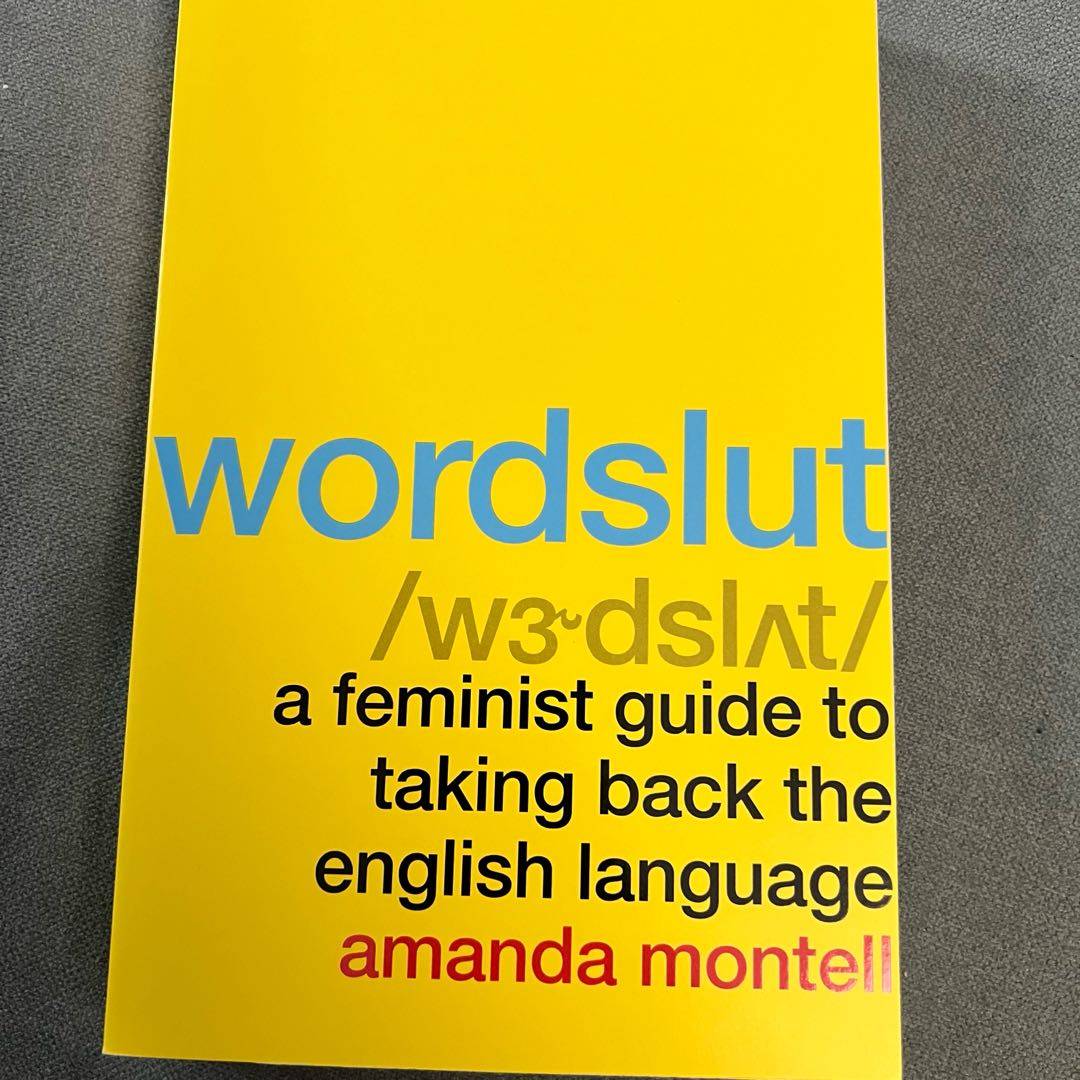
I loves words. Love the idea of taking back language meant to break us down.
I look forward to reading this one.

I loves words. Love the idea of taking back language meant to break us down.
I look forward to reading this one.
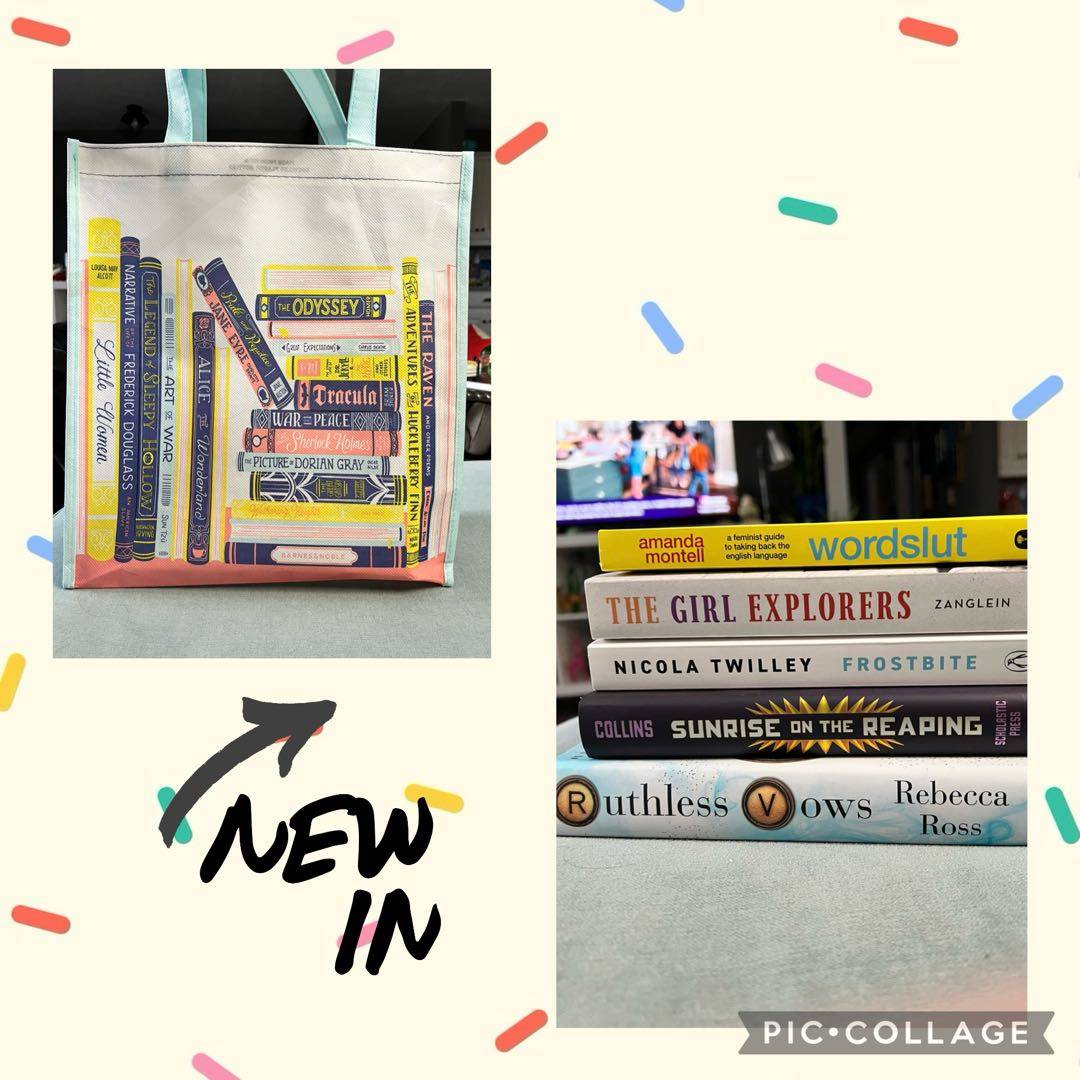
Had some gift cards to B&N. I‘ve read Ruthless Vows but needed to physical copy to complete the set bonus it was 50% off. I‘m going to post each book separately as well.
#bookhaul
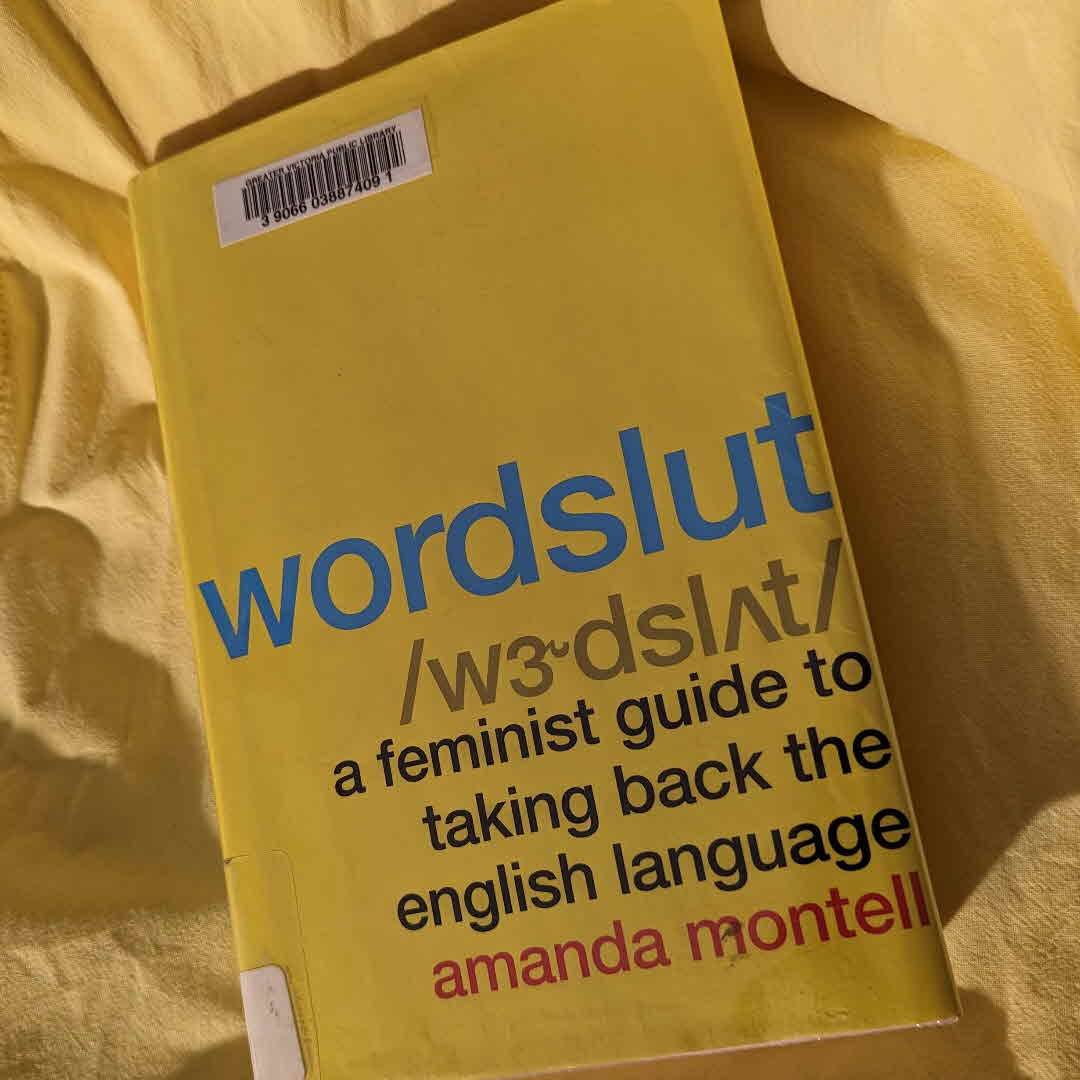
Words are just nifty. And gaining a better understanding of how they're used in language and communication, even more so. It can be a downer (or rage-inducing) to realise where language has created or reinforced oppression/prejudice, which makes me even more grateful for this incisive and funny book; Montell does a great job of opening the conversation, then encouraging a way forward... people and language can change.1/?
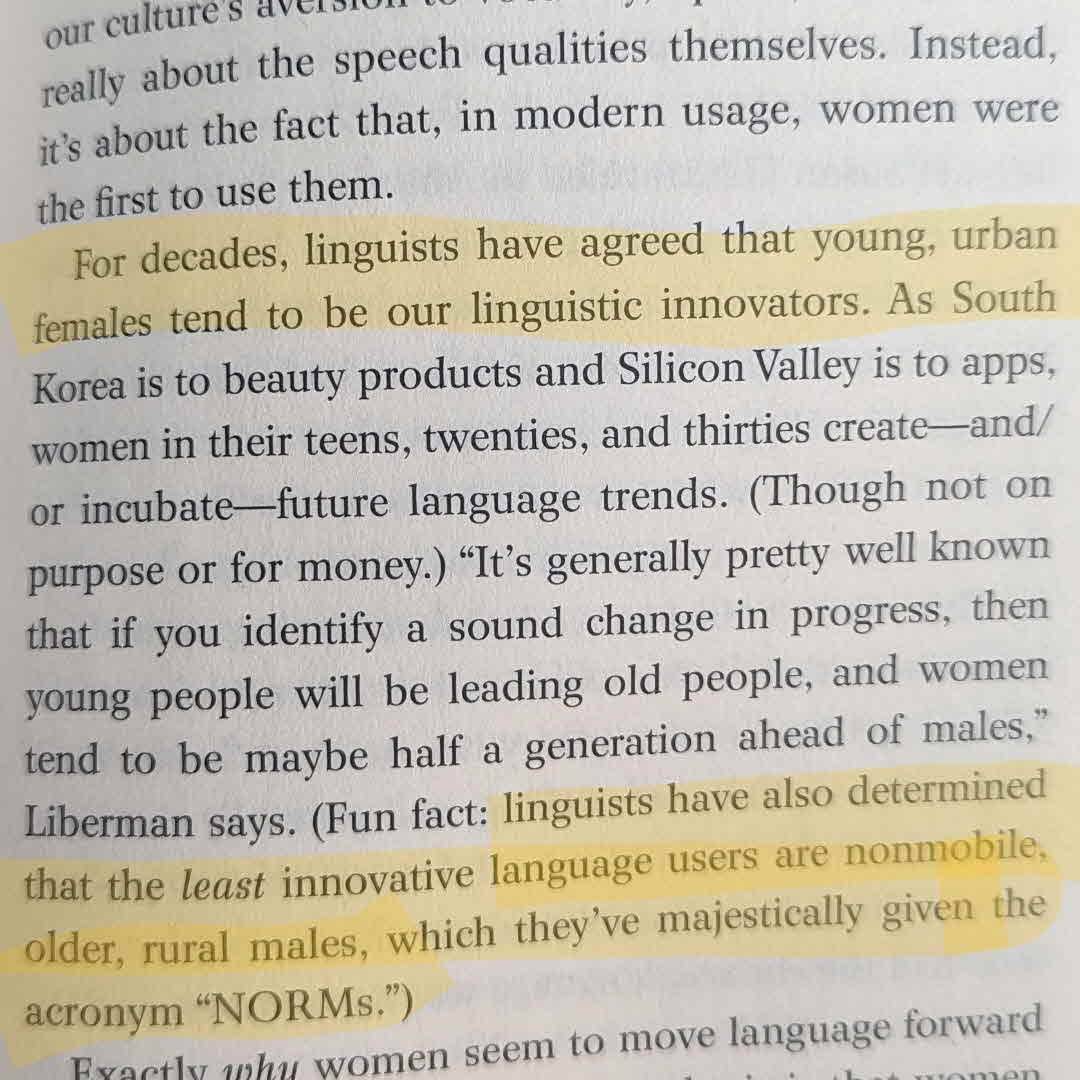
Hee hee hee.
To quote Prince John from the animated Robin Hood film of 1973: "forgive me a cruel chuckle".
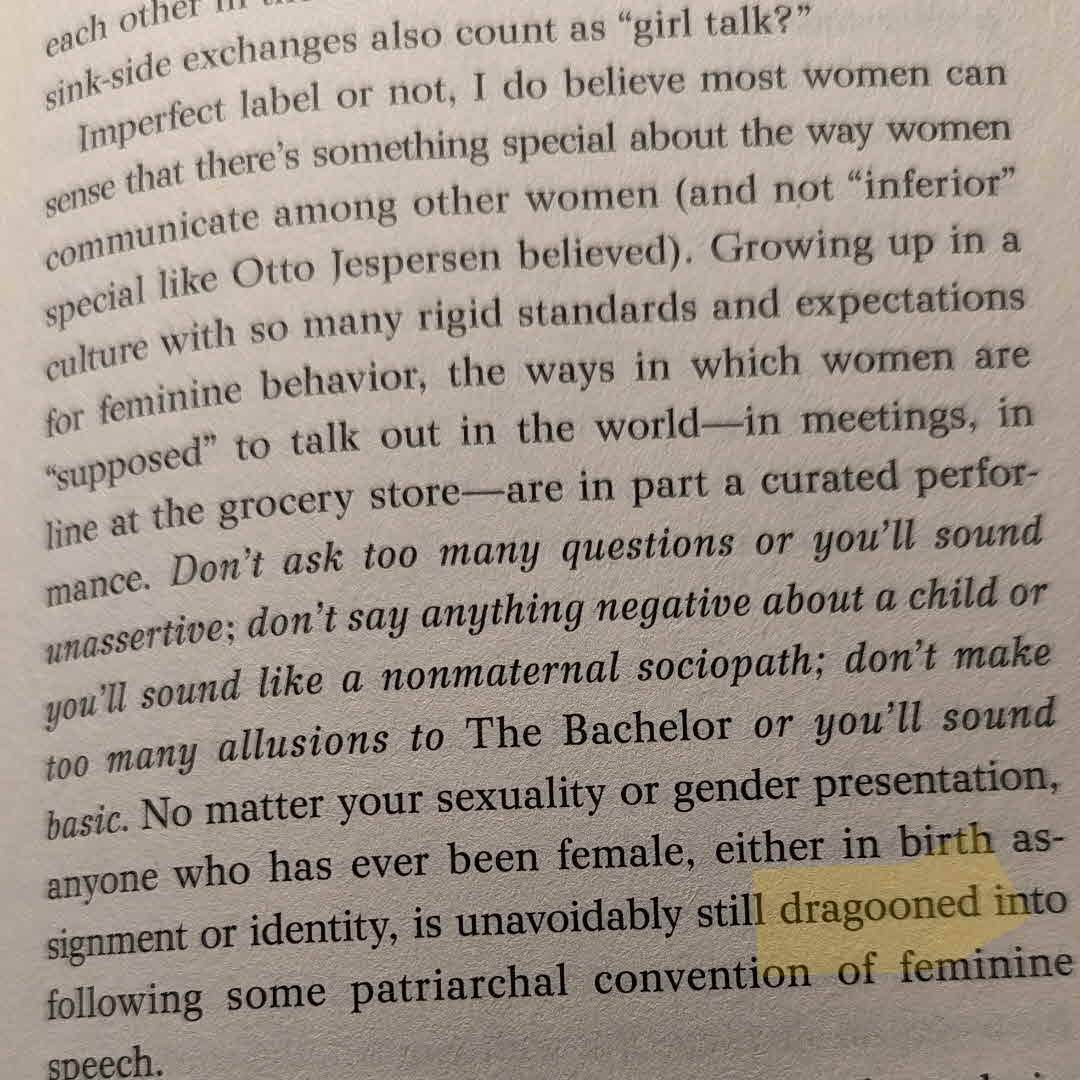
Such a vivid verb, you don't see it out in the wild often enough.
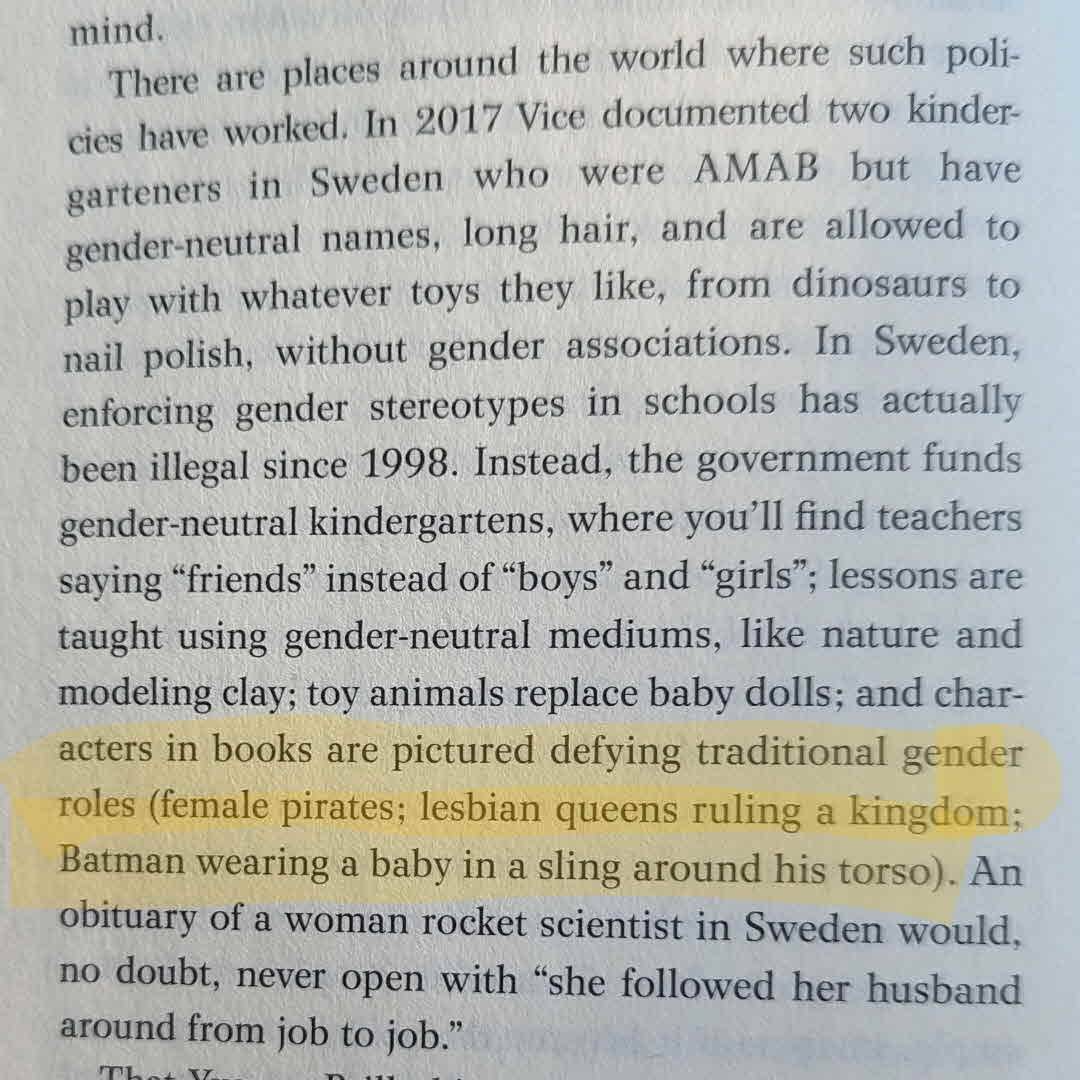
I don't care if it's in Swedish, I desperately want picture books with Batman wearing a baby in a sling. Batfam fanart of little Damian made canon, pretty please! Or maybe he's just babysitting for Clark and Lois? I'll take it all!
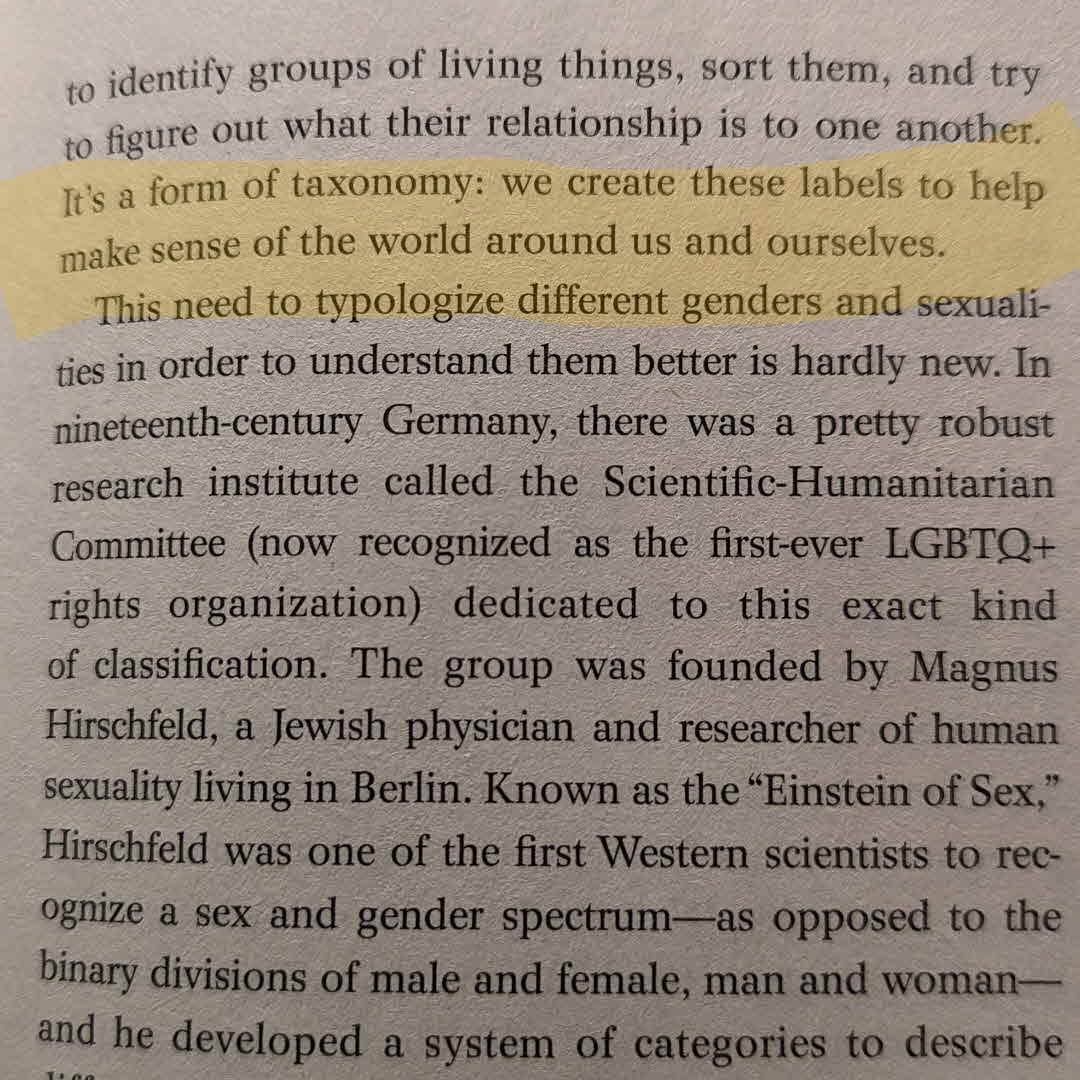
While I'm always happy to enter new labels with accompanying metadata into the system that is my brain, there is a part of my noodle that is eternally crying out: "must catalogue!"
I take it this isn't just an info management thing...
Reread. Love. Fave parts are all the asterisks and the chapters on swearing and gendered forms of speech. Just watched an Irish movie set in the 1920s and they really did use like like valley girls. Amazing.

I don't read a lot of non-fiction but I absolutely loved this one #LetterW #alphabetgame @Alwaysbeenaloverofbooks
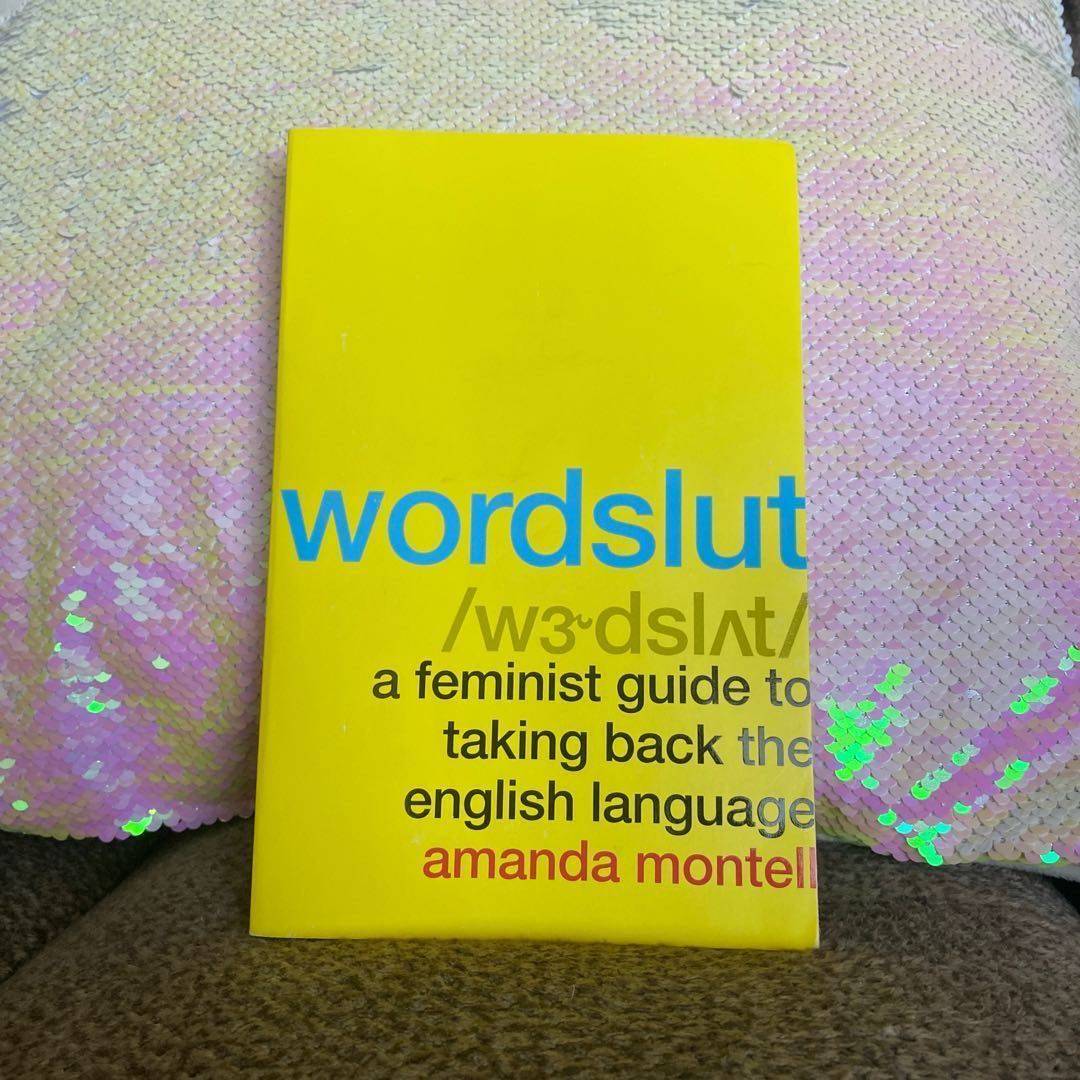
Sorry for the delayed posting, but I received this surprise book in the middle of a crazy stressful week and it really made my day. Thank you! #LitsyLove is an amazing group and you are the best people in the world for keeping it all going ❤️
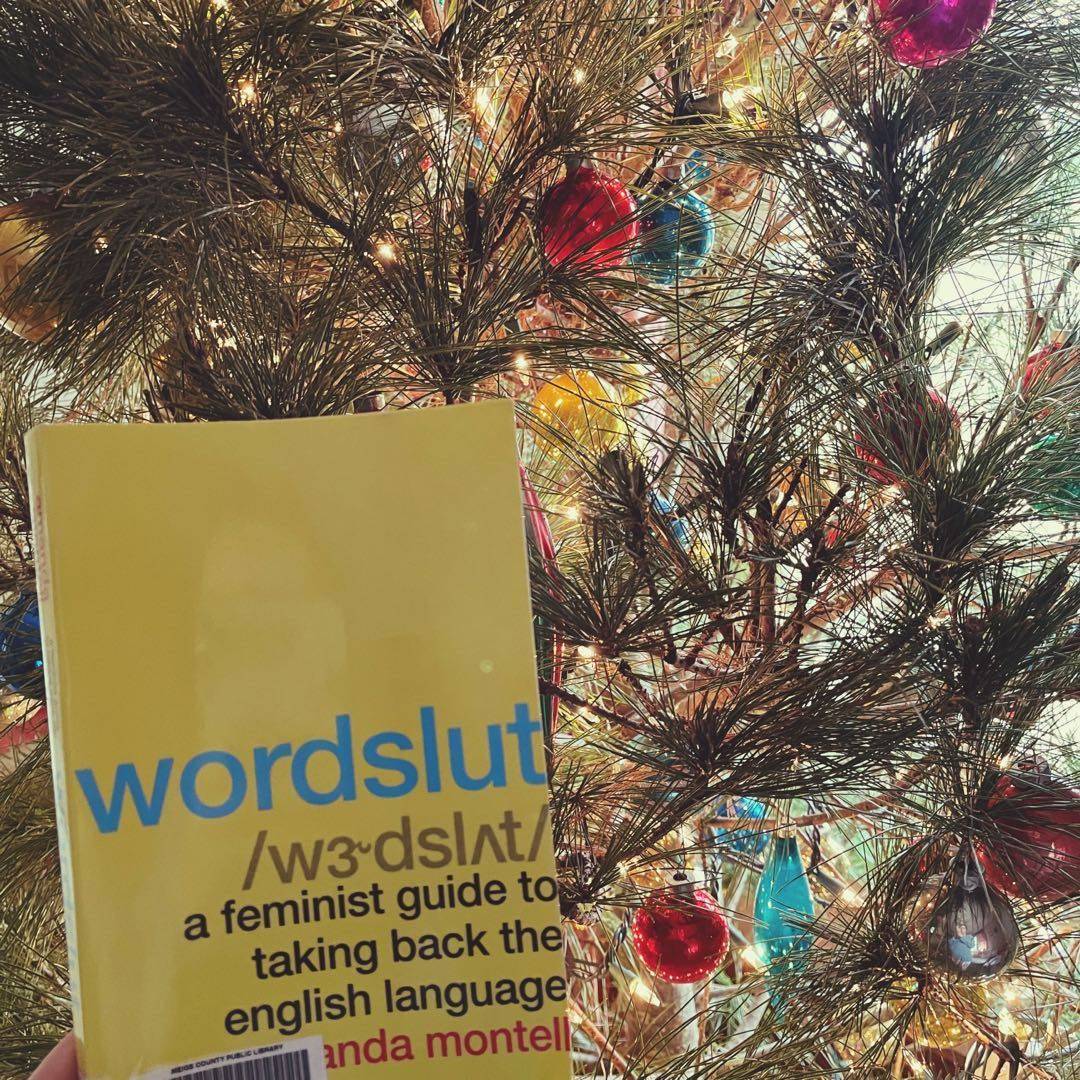
Pictured with my Christmas tree because this book is an absolute GIFT! I learned so much about language and how groups are affected by its usage. And even tips for changing the system! Seriously, where are these concepts in our education system?? A top read of the year, right beside Cultish, Montell‘s other excellent book. I‘ll be reading everything this woman writes!
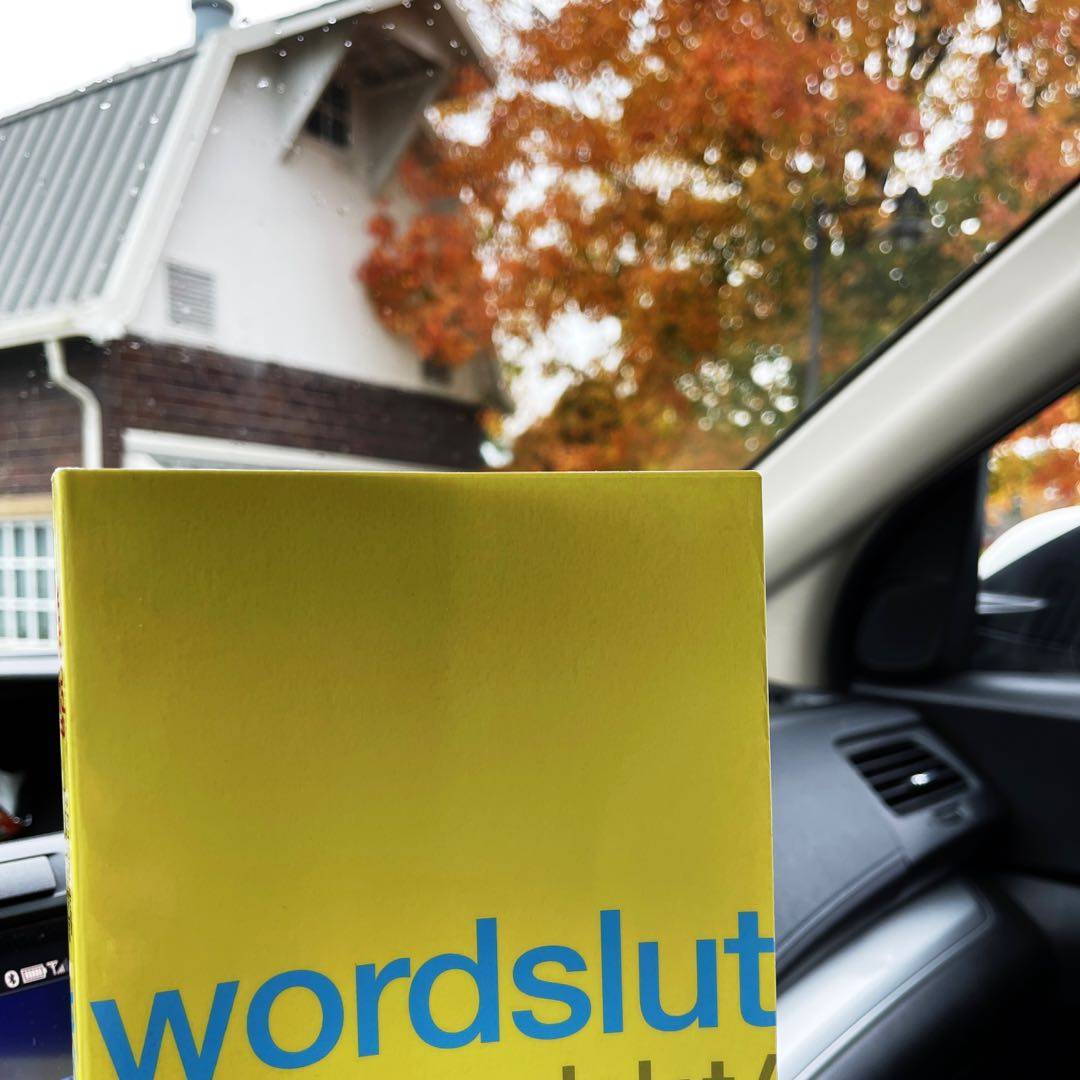
One of our library system‘s branches is in an old barn with a gorgeous maple out front that always puts on a great fall show🍁
Got my time in for the week and waiting to pick up my son from school. Found this book in my bag, so I‘ll read with this excellent view 📖
EVERYONE should read this book.
Well structured, fascinating, endlessly eye opening to how language influences gender and gender norms.
#selfguidedwomenandgenderstudiescourse
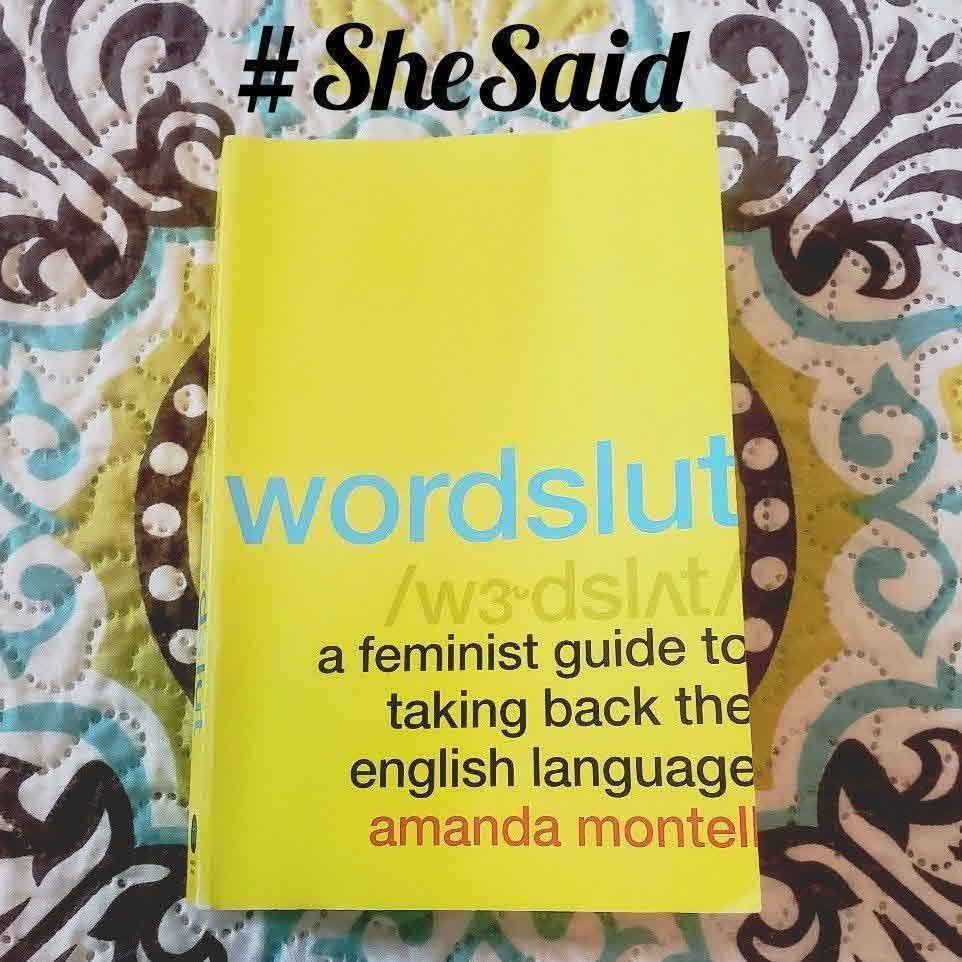
I enjoyed this look at language and gender issues. The author used a lighthearted, flippant tone, and made me chuckle at times, but her tone shouldn't diminish the importance of these discussions. Our beliefs and values often inform our word choice, but just as often, the words that become mainstream inform our beliefs and values. #SheSaid
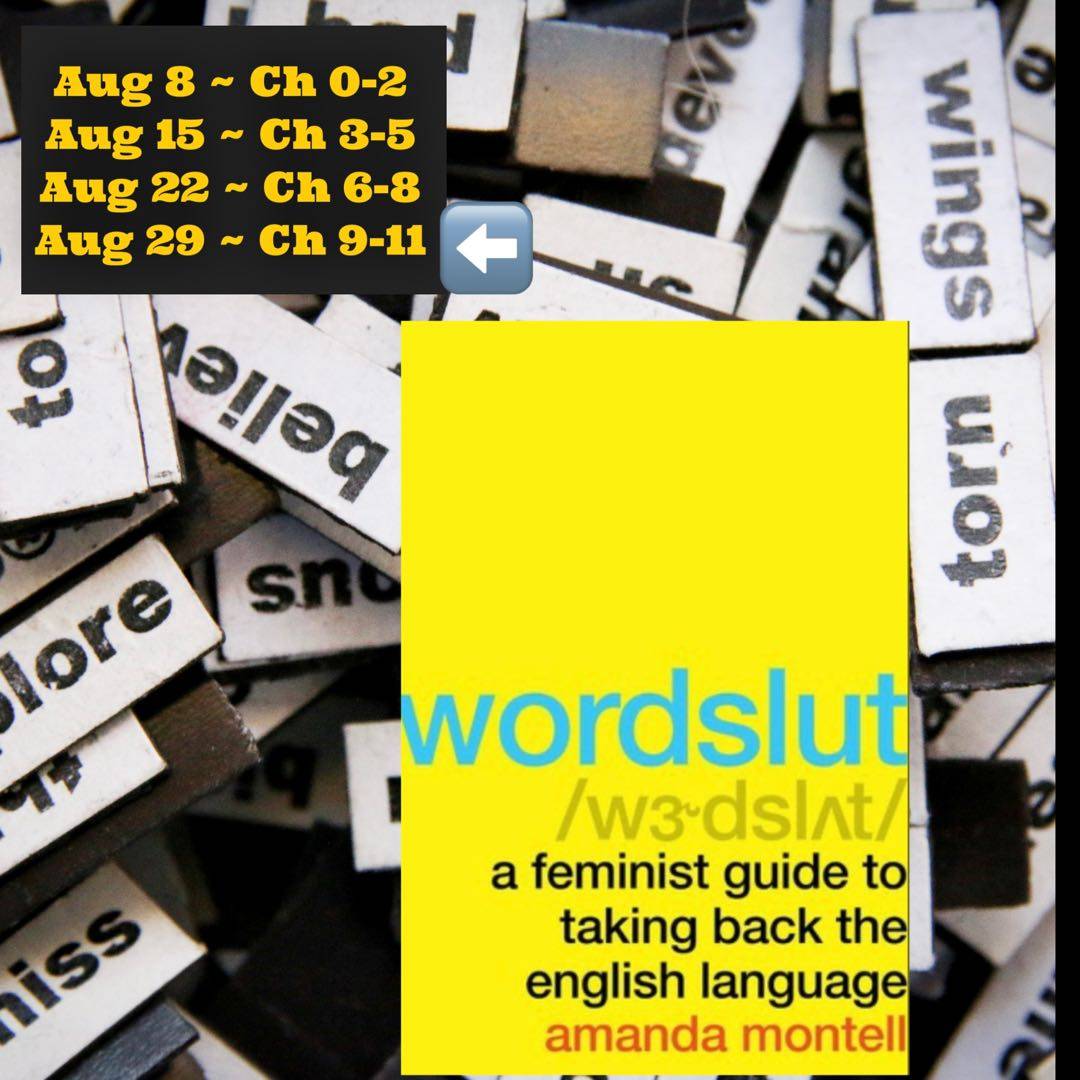
Another book wrapped up #SheSaid!
How‘d you feel about the last section, about the book overall?
I enjoyed this one, informative yet fun, made me think about things in new ways, that‘s always a plus for me.
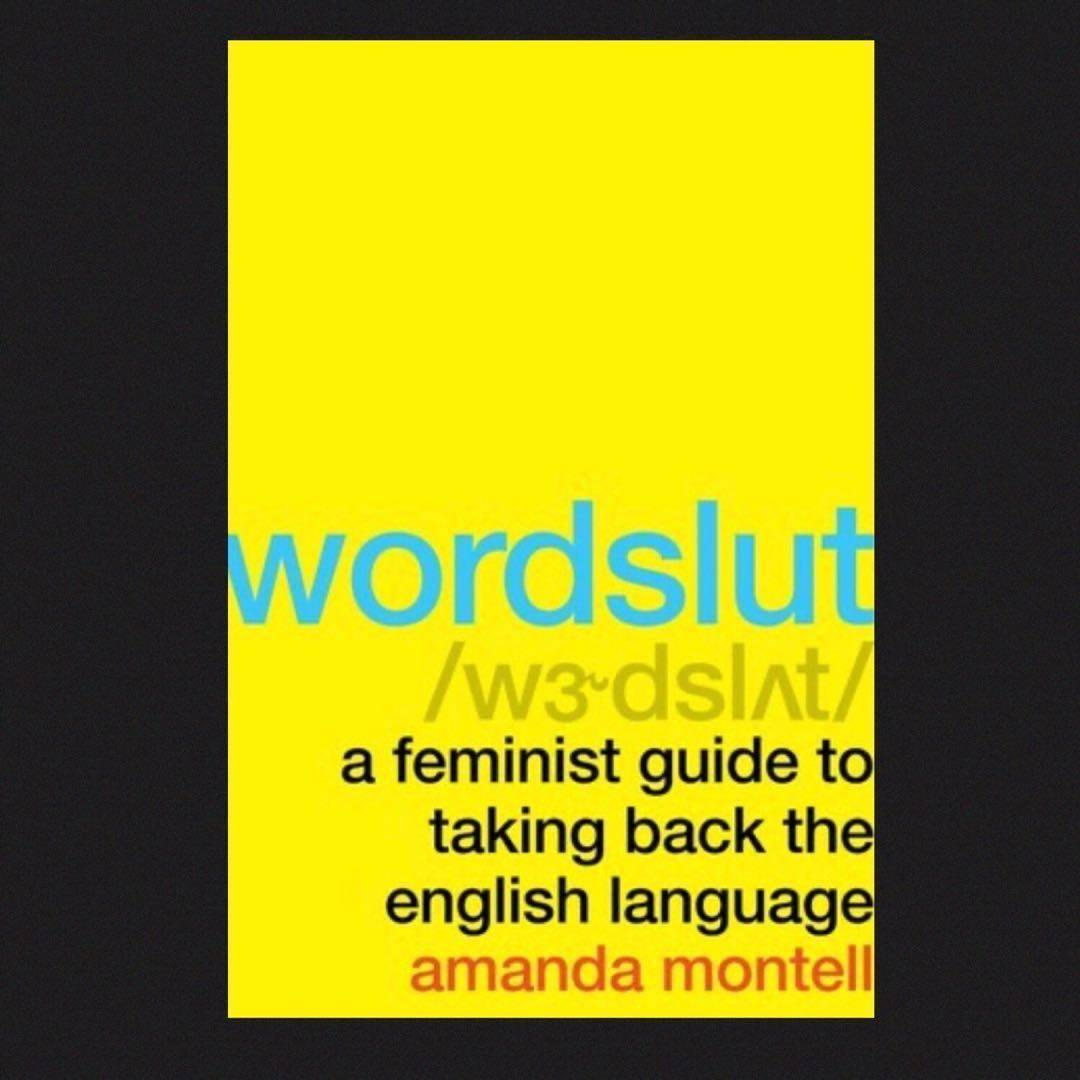
This was an informative book about language and how it is used to control or take power from women. A lot of the things we‘re taught are wrong (like saying you know or like, or cursing) are to make women question themselves and focus in how they speak rather than the content of what they‘re saying. You can tell that the author really enjoys this topic, and she writes in a fun way. This was our #SheSaid book for August.
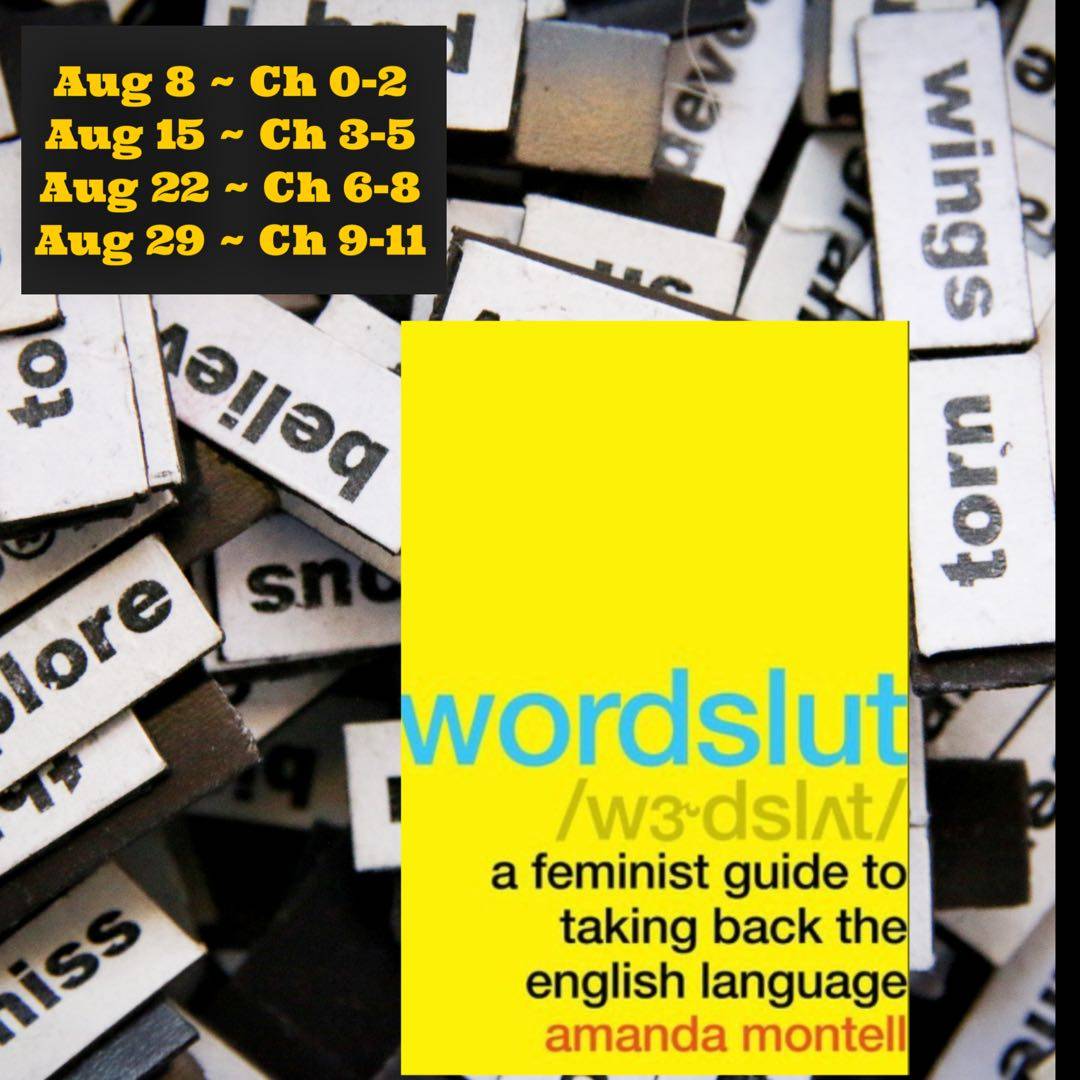
I really enjoyed this one #SheSaid. A great mix of knowledge, making me think of things in new ways, and fun linguistic tangents that I just loved! Pick!
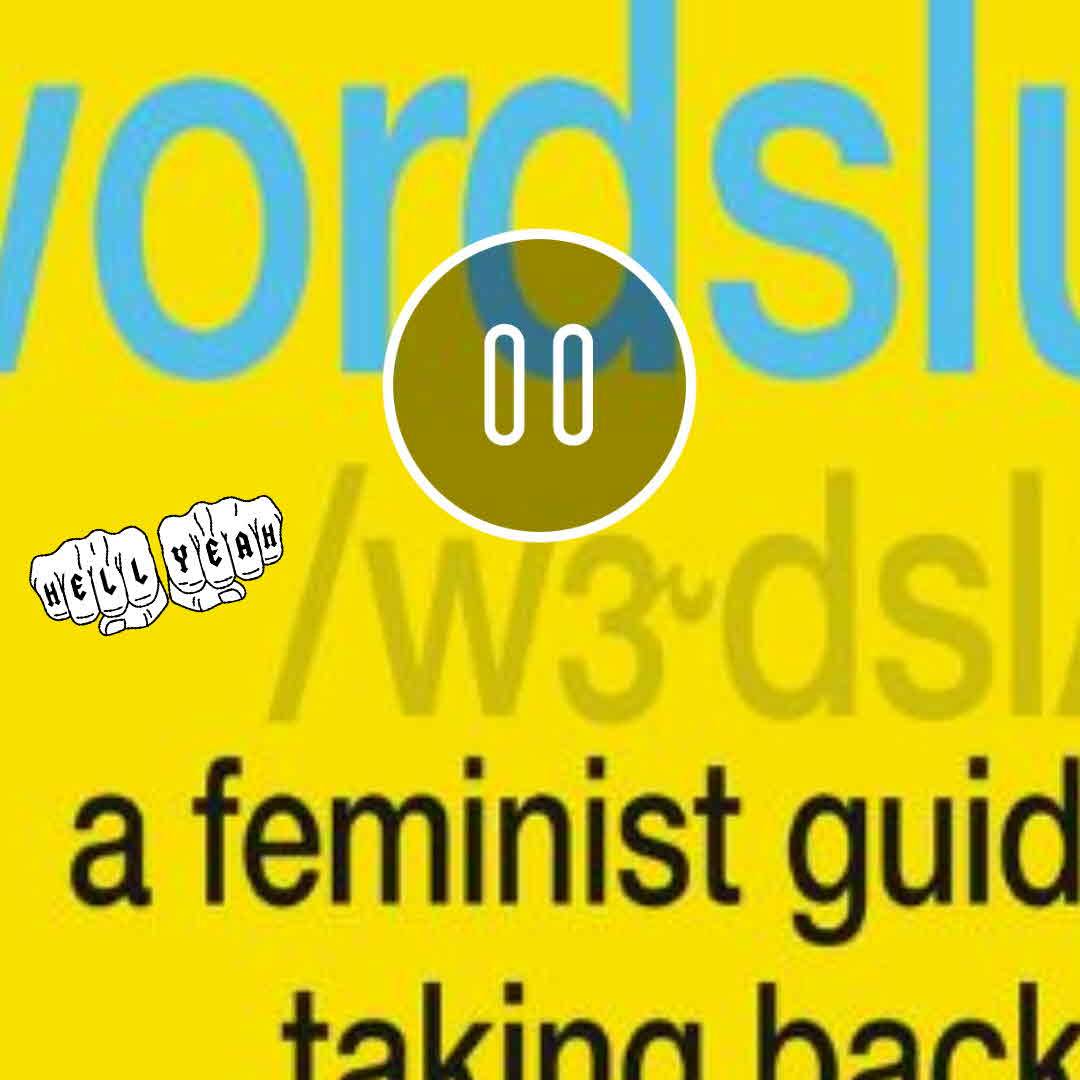
This author is so pumped about language. It's awesome. I definitely recommend the #audiobook. I already requested her new book from my library.
#SheSaid with @Riveted_Reader_Melissa
Final discussion on Sunday. Until then 🤐
#DoubleSpin done!
@TheAromaofBooks
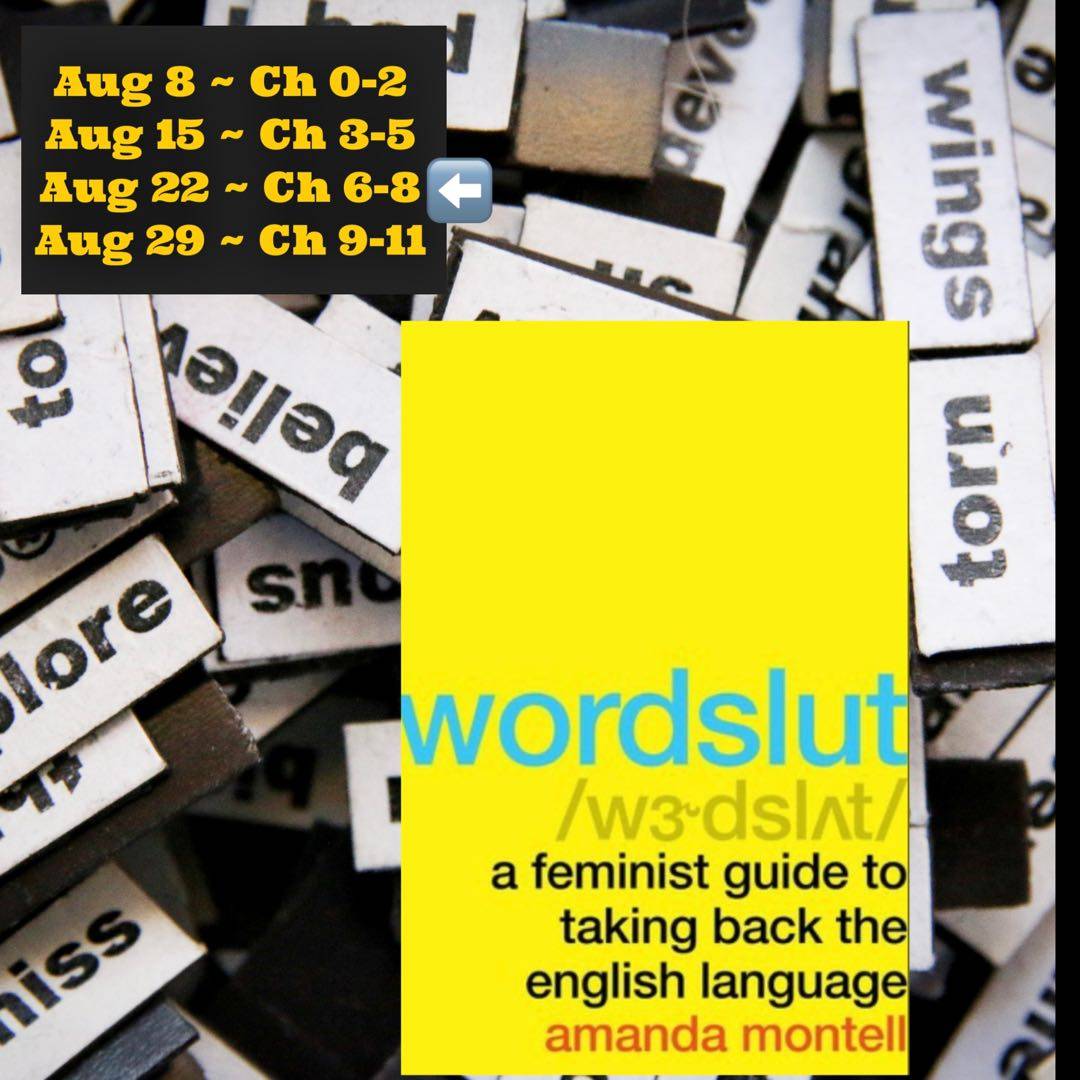
Discussion time! Another group of great chapters, lots to think about & discuss! What struck you this week? I thought a lot about the use of interrupting & mansplaining as suppression tools. I knew they were an issue before, but this made it more clear somehow. I also liked that she included great catcalling info, and how it‘s used against other groups, and how when confronted they don‘t care that‘s it‘s wrong. Very interesting stuff!
#SheSaid
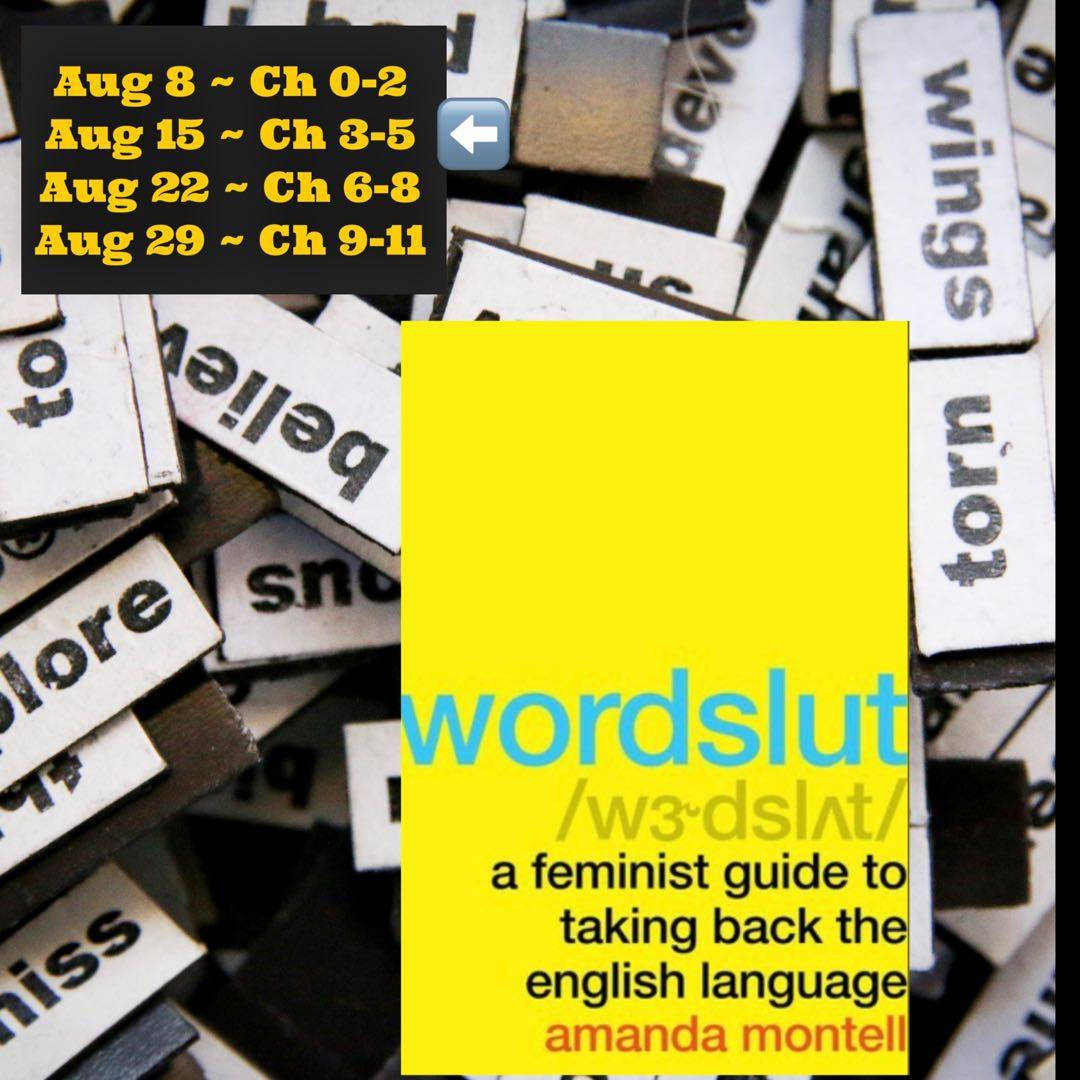
Well #SheSaid this has been a tough week y‘all (I‘m working on incorporating this one), many of our past reads are coming back to me as I watch the news this week (Malala Yousafzai particularly).
I found myself grateful that our current read is written in a lighter manner, well… like… you know… who knew women were such innovators of language, and that we innovated it so subversively in many cases. I‘m loving these little facts and tangents too.
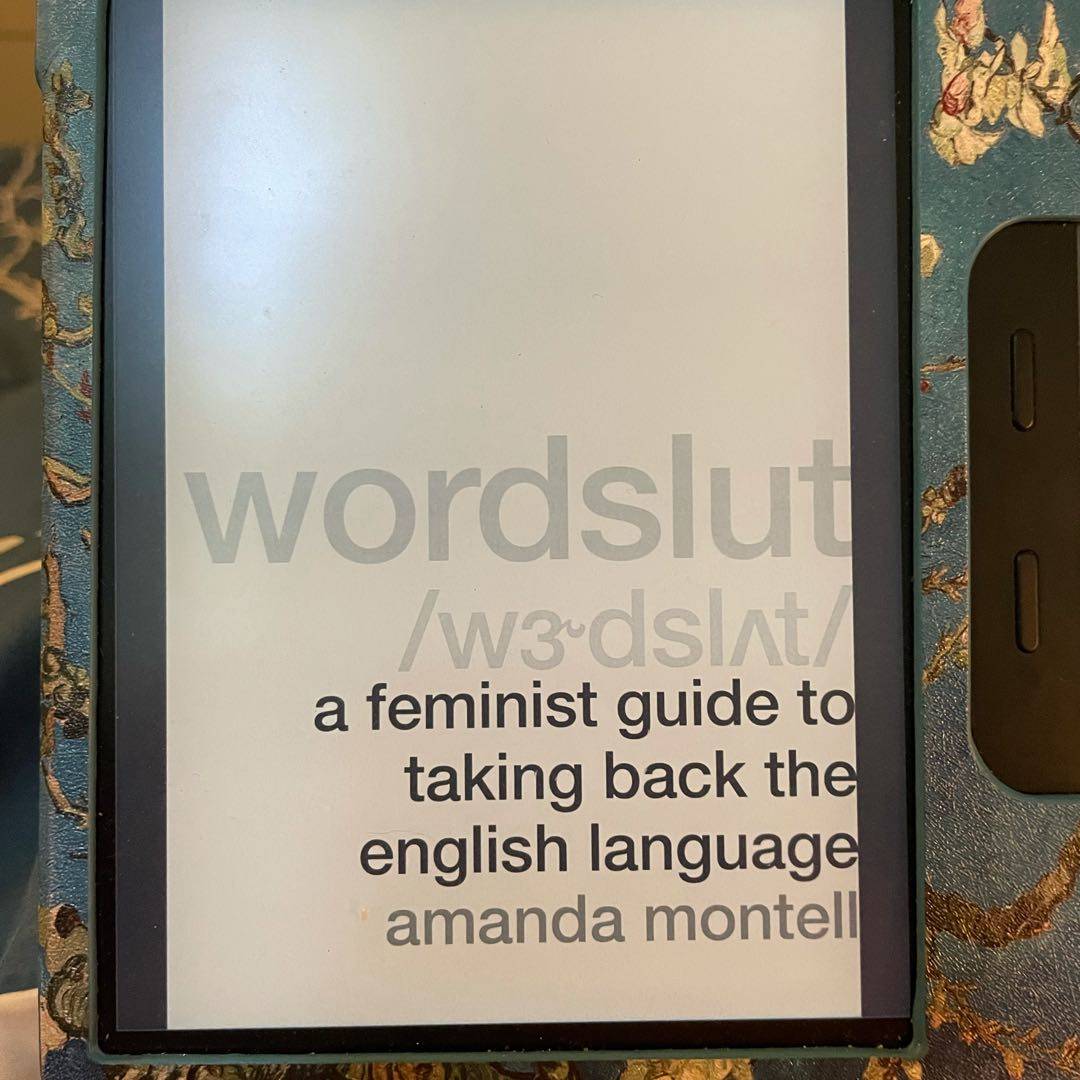
This book is making me increasingly less inclined to judge people by their grammar. I had no idea that the use of hypercorrection (using I in a sentence where you should be using me, for example) is frequently employed by women of “less socioeconomic privilege” in order to help them gain respect. There are other examples too that are all making me rethink my attitude towards grammar. #SheSaid
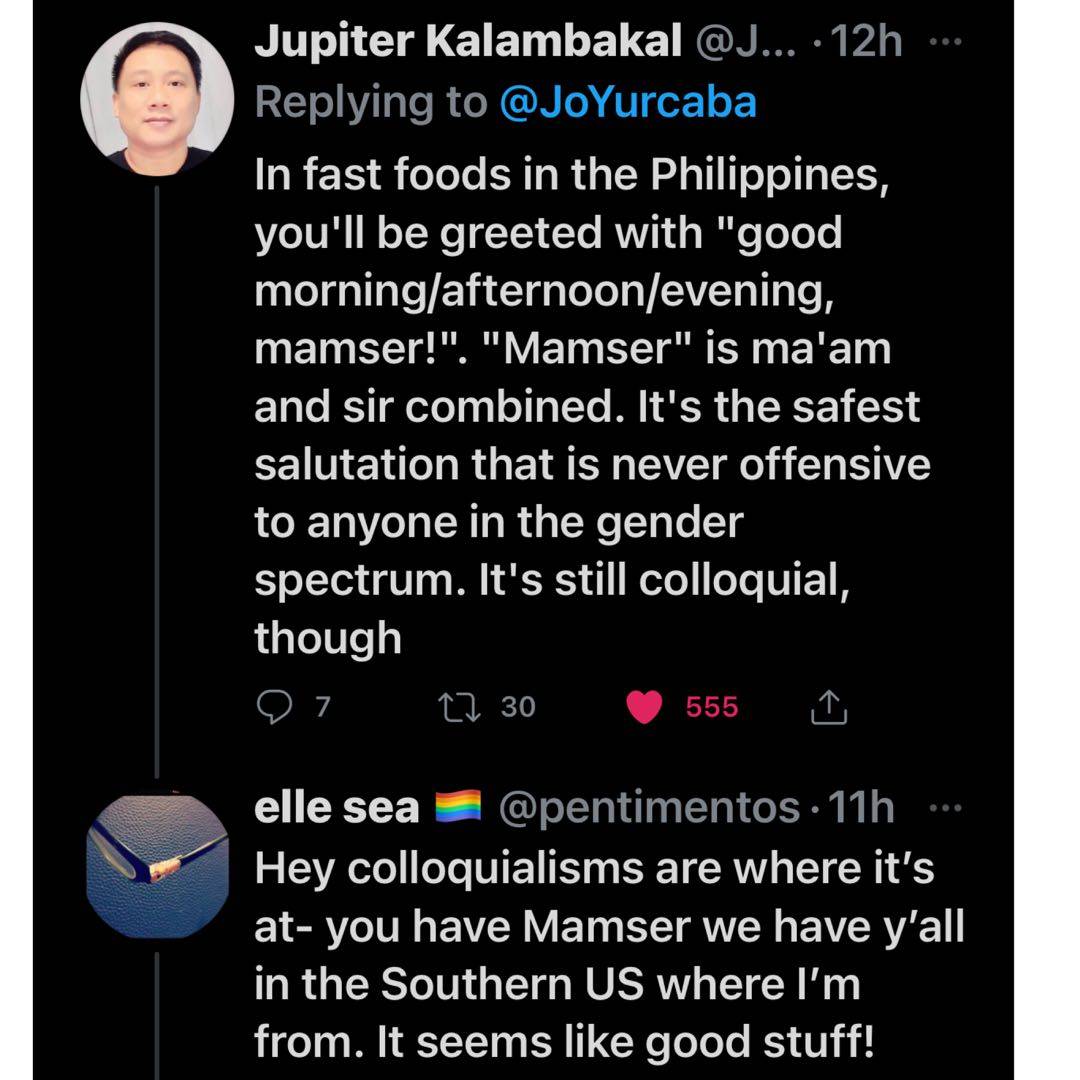
On Twitter today… sometimes the universe shows you cool things that just happen to go with the book you are reading and the #SheSaid discussion.
Folks
Y‘all
Mamser
#BookSerendipity
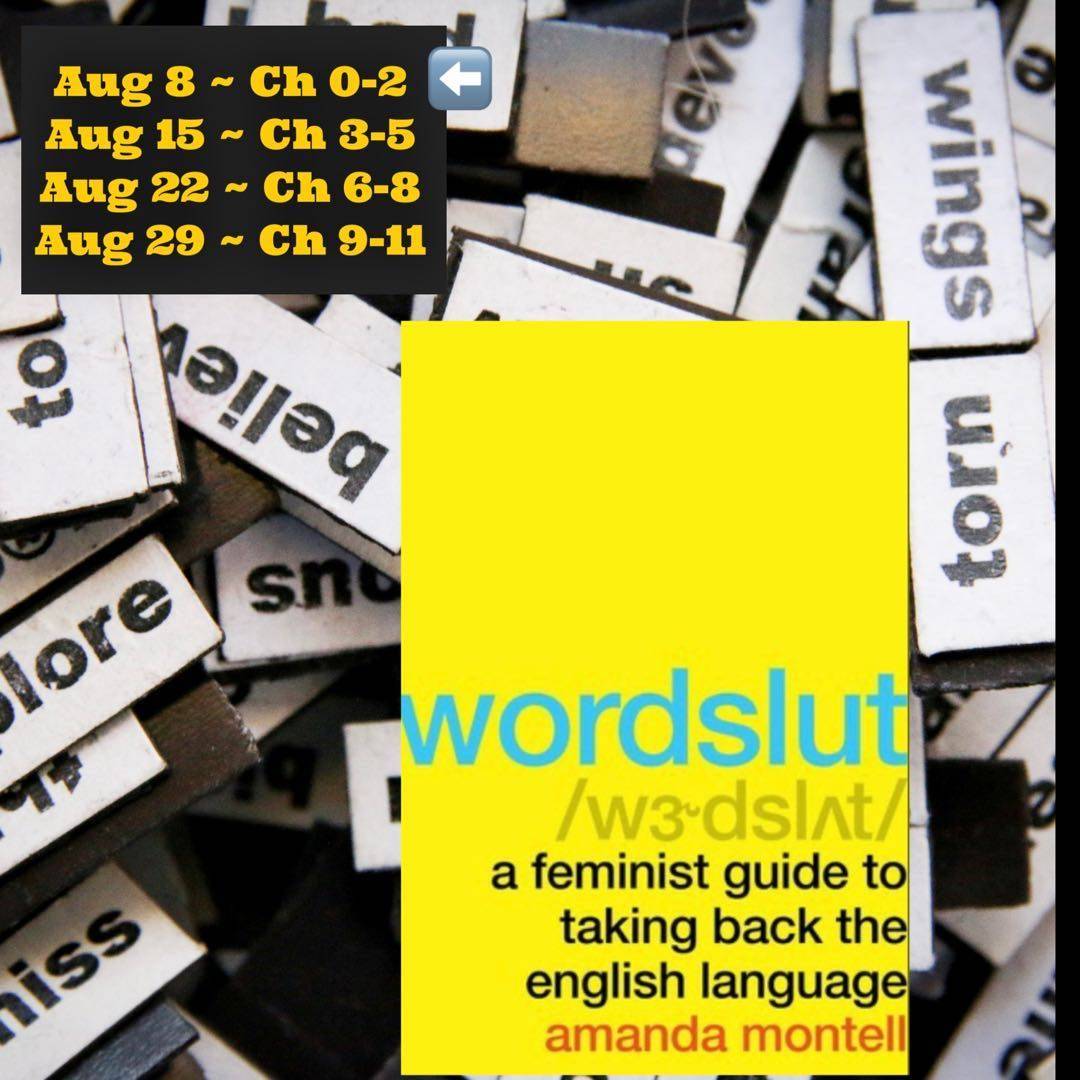
A new month & a new book #SheSaid!
I‘m really liking this one you folks (it just doesn‘t roll off the tongue quite right for me)…y‘all (I think I prefer that one too). I‘m finding this one very interesting & I really like her writing style so far. Plus I‘m thinking about words a bit more, the part about female derived insults was illuminating. I love all the little word histories & facts. How is everyone else making out? What‘s struck you so far?
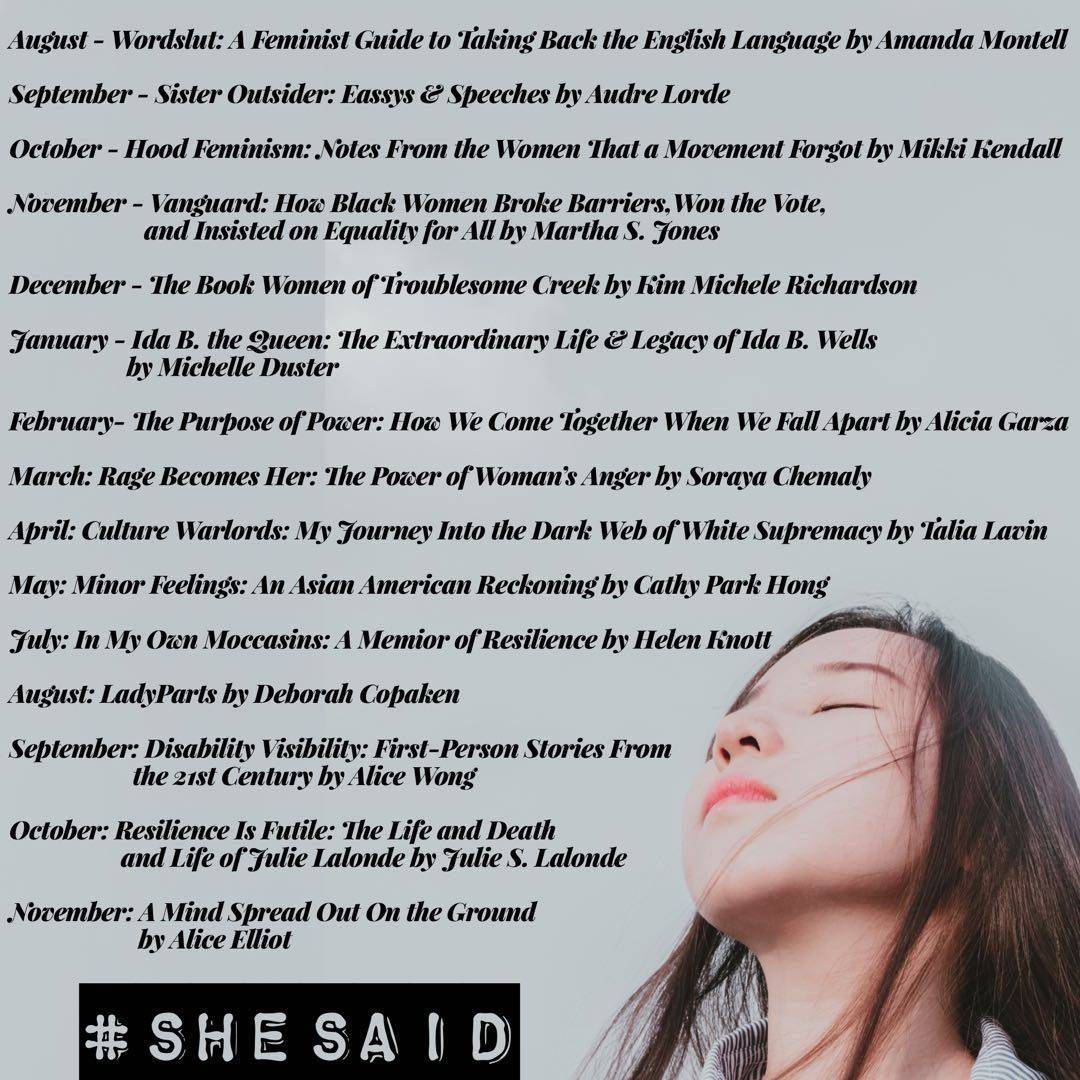
#SheSaid Updated schedule!!! Way into the future again, so you can set up library holds and/or interlibrary loans if you need too!
Where‘d these books come from?
I took all the “honorable mentions” from the last vote (those that missed the cut by 1 vote) AND then I added in the few books people have flagged me on over the last year as possible picks AND finally I prioritized those that dealt with groups or subjects we haven‘t touched much yet⤵️
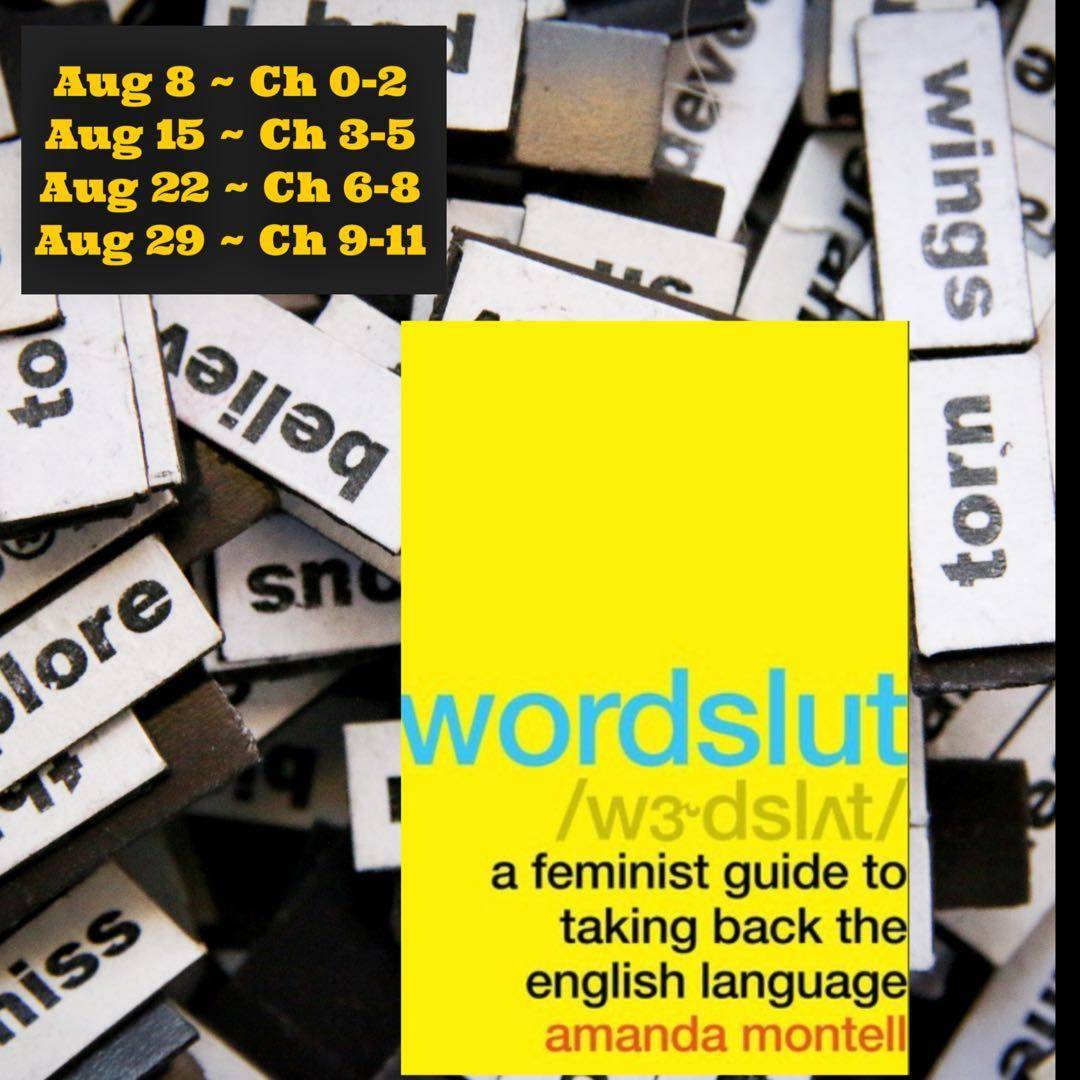
The next schedule for #SheSaid and anyone else who would like to join us!
@tenar @vlwelser @KVanRead @SamAnne @Julsmarshall @arlenefinnigan @Chab256 @Scochrane26 @CoffeeK8. @MallenNC @Caroline2 @DebinHawaii @Nute @Currey @Augustdana @Suet624 @Singout @mhillis @BarbaraTheBibliophage @megnews @Jgotham @AnneCecilie @Kdgordon88 @kspenmoll @staci.reads @Smrloomis @KathyWheeler @ImperfectCJ @bibliobliss @sabyym @JenlovesJT47
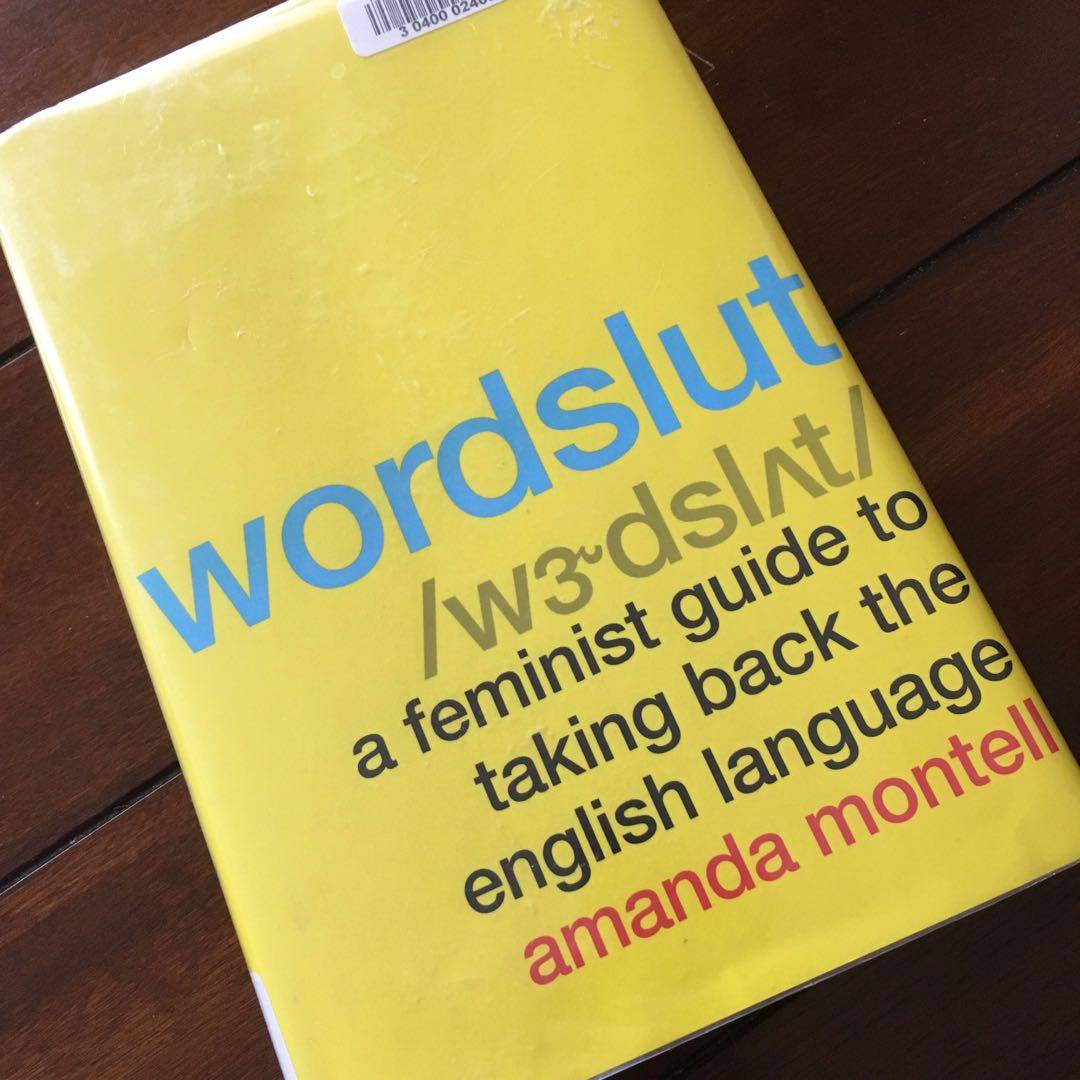
Borrowed via the Marigold Library System. #librarylove
The best part of this book was how scandalized my mother was when she saw the title. Just goes to prove some of Montell‘s points.
Definitely a fun and informative read. I don‘t agree with every point, but they all gave me something to think about how I speak. And how I think about how others speak.
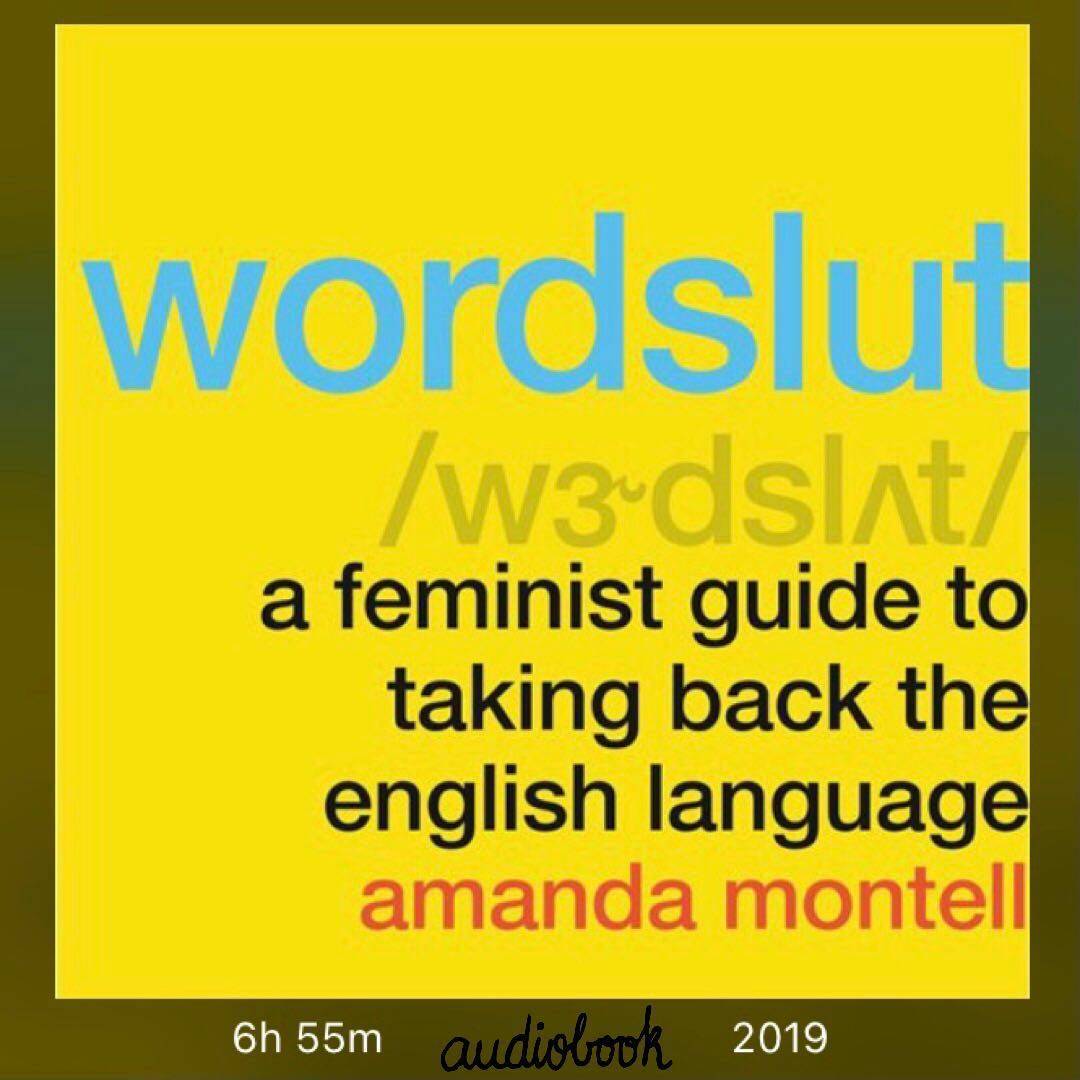
This book was fascinating and incredibly fun to listen to. I will be revisiting parts of it again. If you‘re not comfortable with lots of slang for genitalia or swearing, this book is not for you. Just look at the chapter titles and you will understand. Personally, I don‘t use that kind of language very often, but I find the history and statistics about it absolutely fascinating.
#audiobook #nonfiction #linguistics
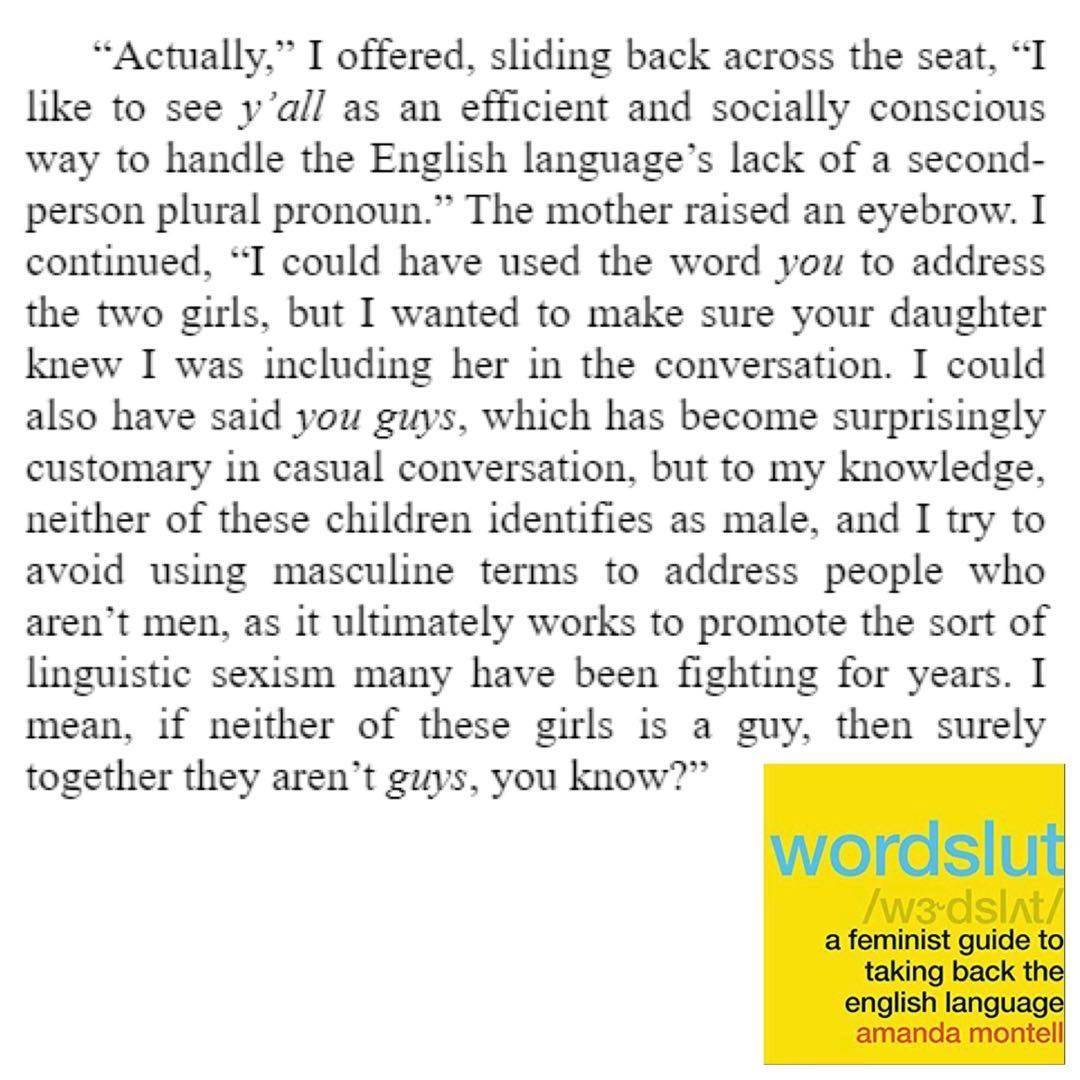
I love books about language and the way that it changes, and after listening to the introduction, or Chapter 0, this is going to be another fascinating one. I‘m a strong fan of y‘all and may need to use some of this reasoning! Another chapter in, it has a lot of language I don‘t generally use, but I am intrigued to learn more about the development of the negative meanings and thoroughly appreciate the humor.
#audiobook #nonfiction
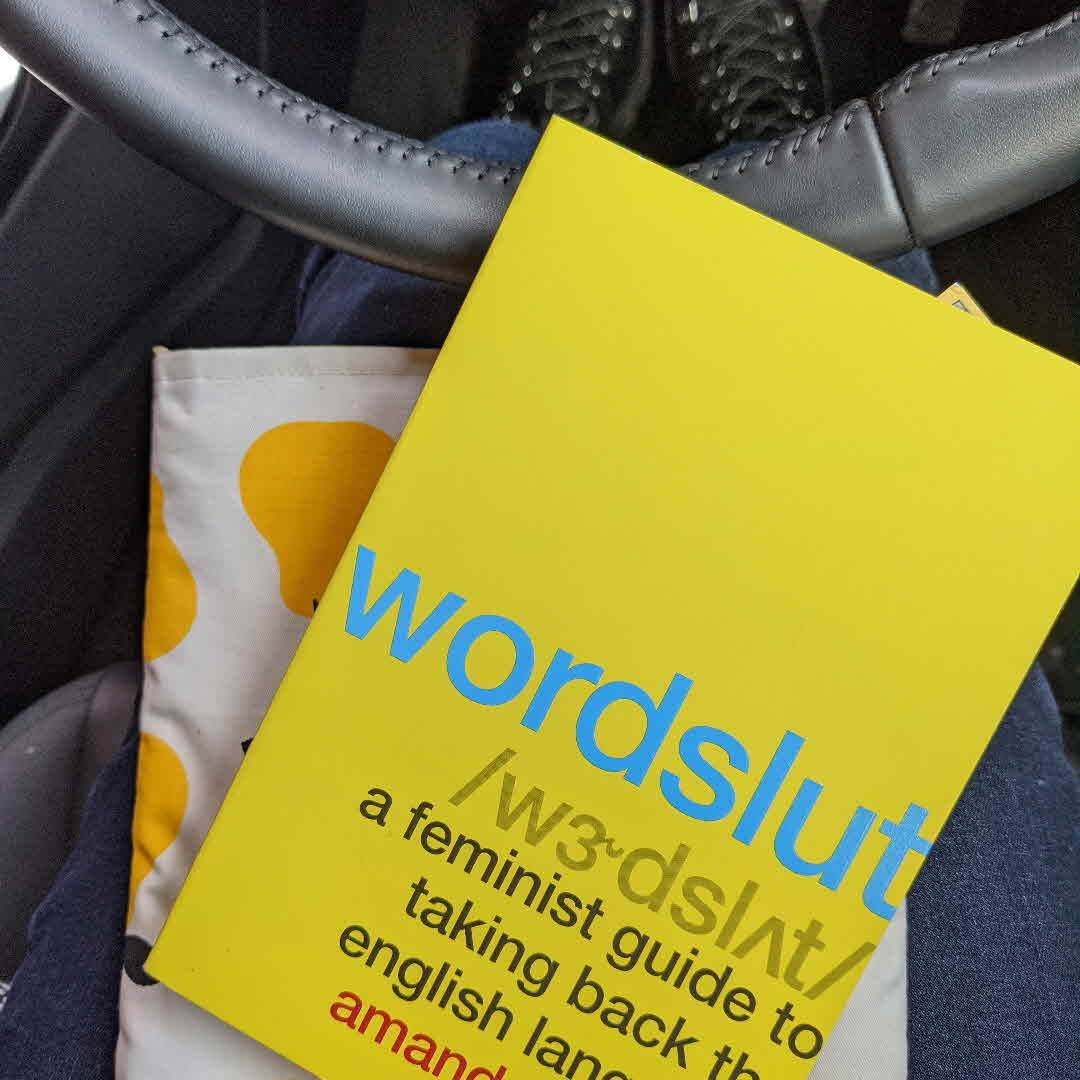
Waiting for a vet appointment in the car, as we're not allowed in until they are ready. Luckily I came prepared (and the first outing of my book sleeve @Caroline2 ).
I love this book already - seriously, combining etymology and feminism? Yes please. Give me all the etymology and all the feminism.
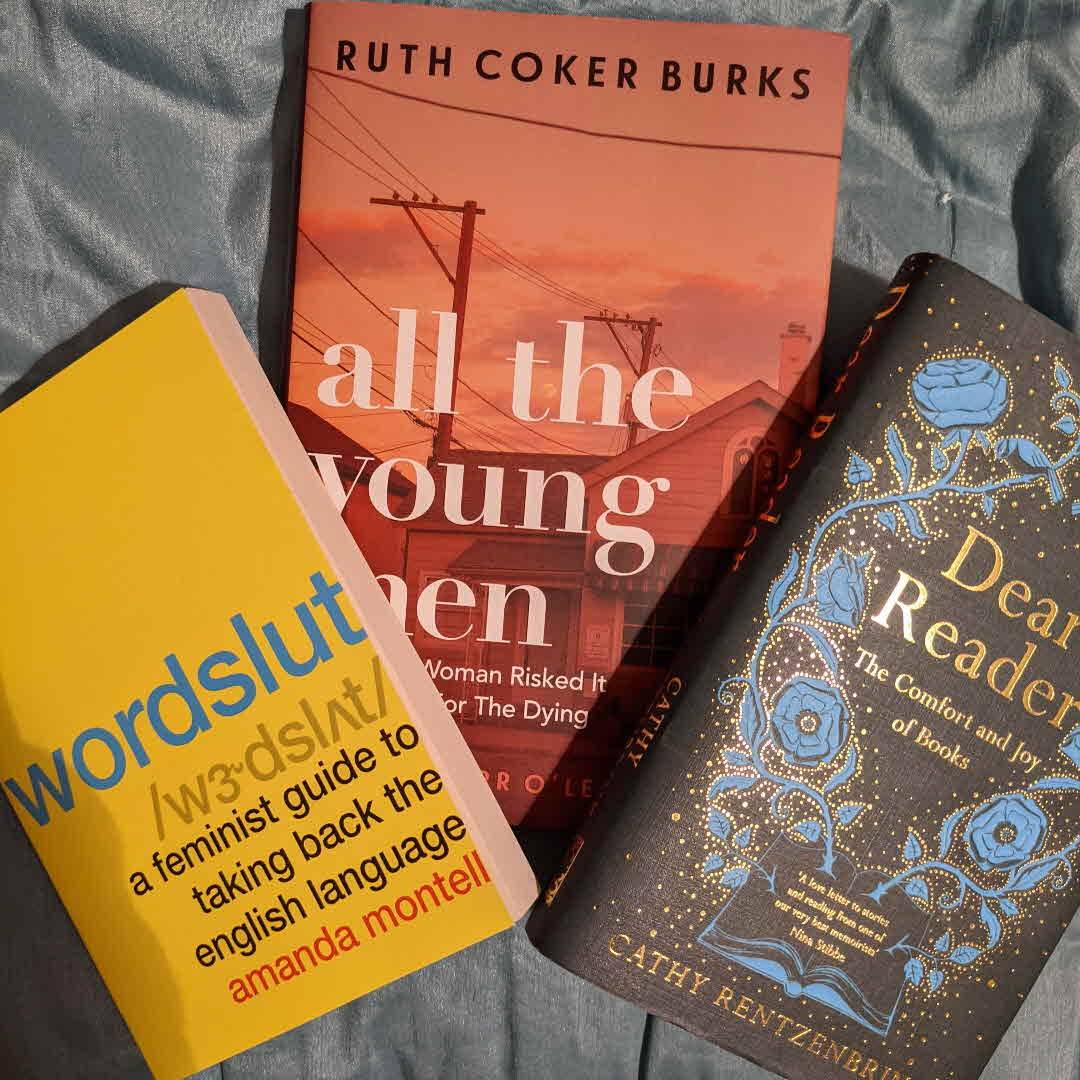
I won some vouchers in a competition at work - what else would I spend on? January treat.
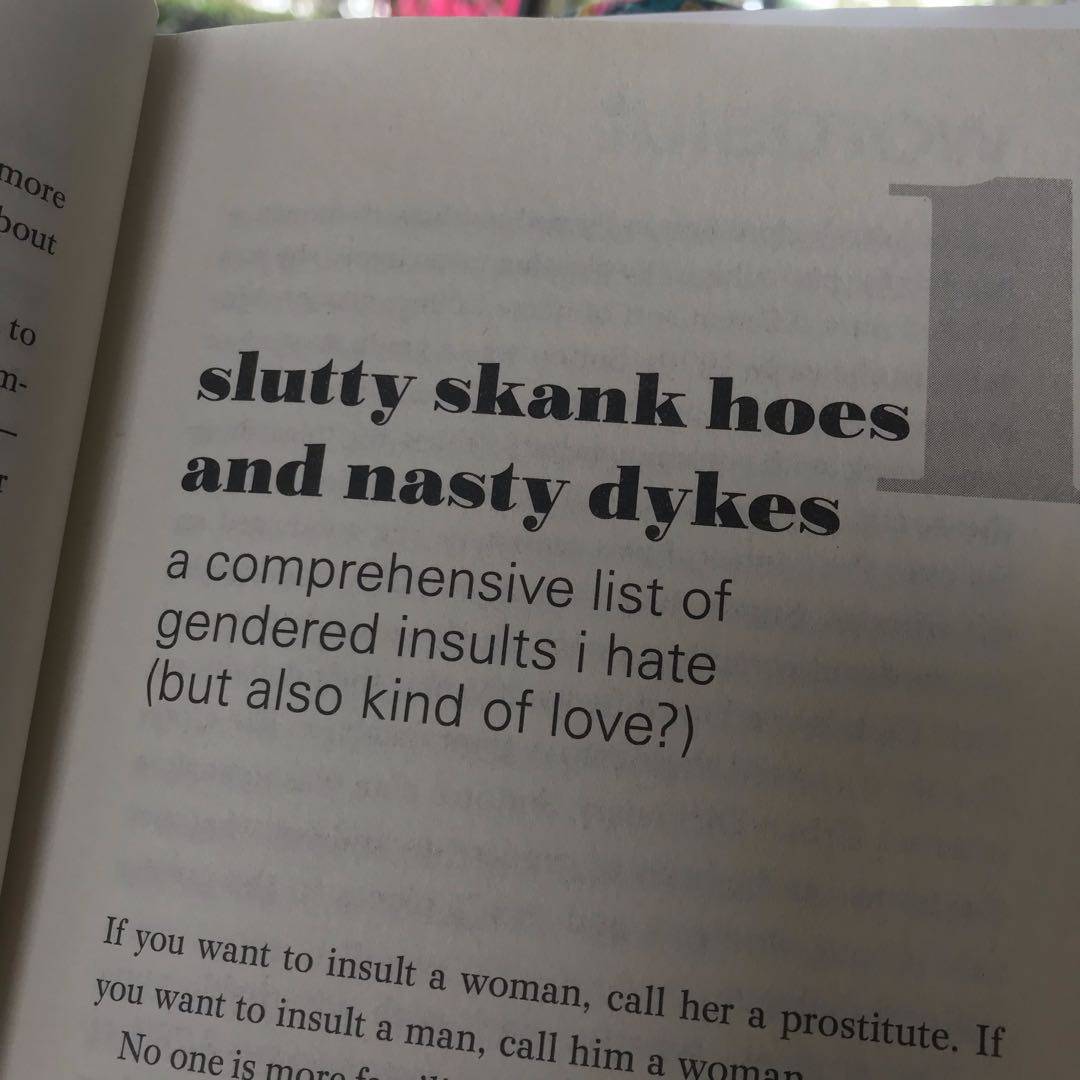
Only read the introduction and I‘m LOVING this so far Helen! 😘👍 @squirrelbrain
How can I not love a book with these chapter titles!?
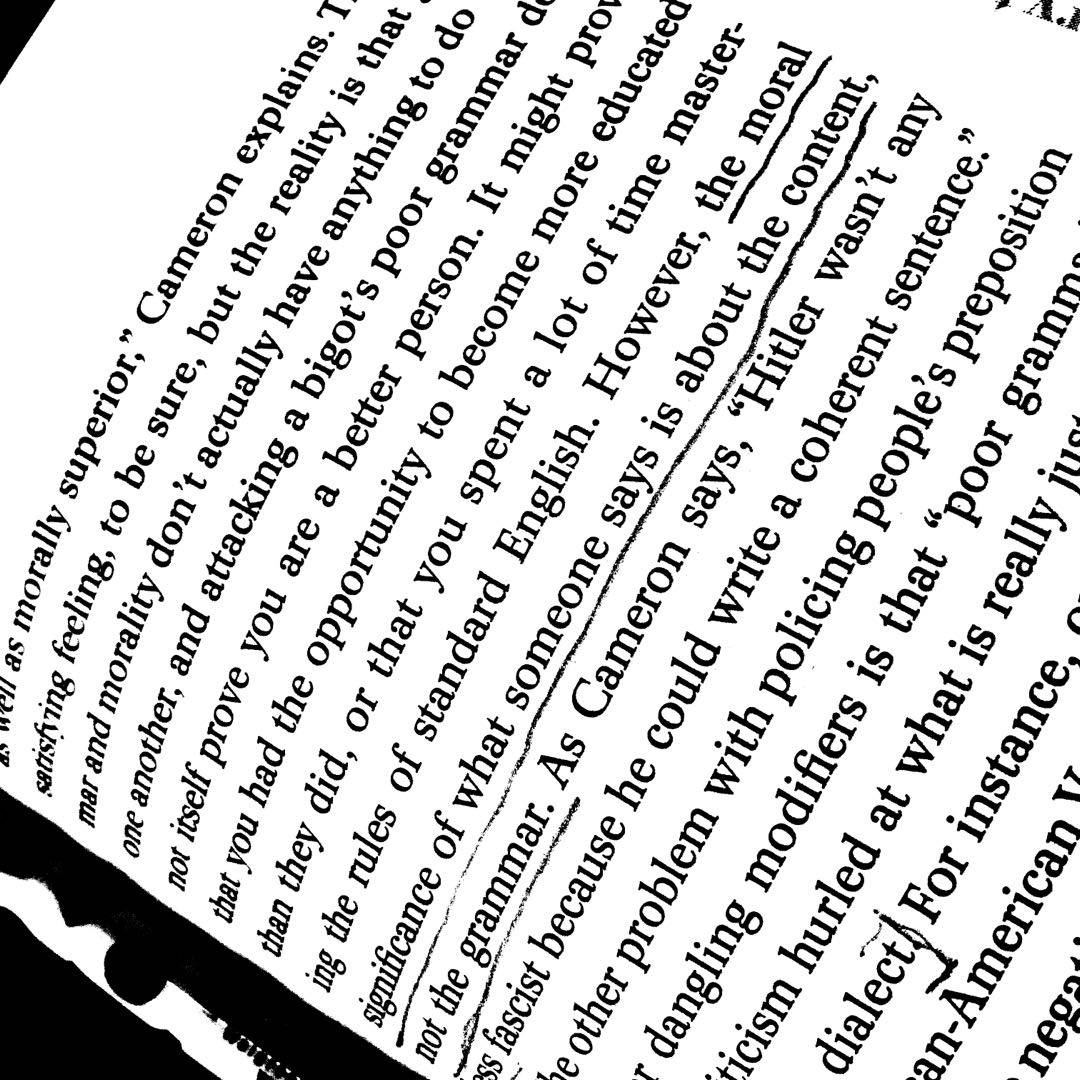
... the reality is that grammar and morality don‘t actually have anything to do with one another, and attacking a bigot‘s poor grammar does not itself prove you are a better person .... the moral significance of what someone says is about the content, not the grammar. As Cameron says, “ Hitler wasn‘t any less fascist because he could write a coherent sentence.” pg. 163
I should‘ve taken more linguistic classes in college. #missedopportunities
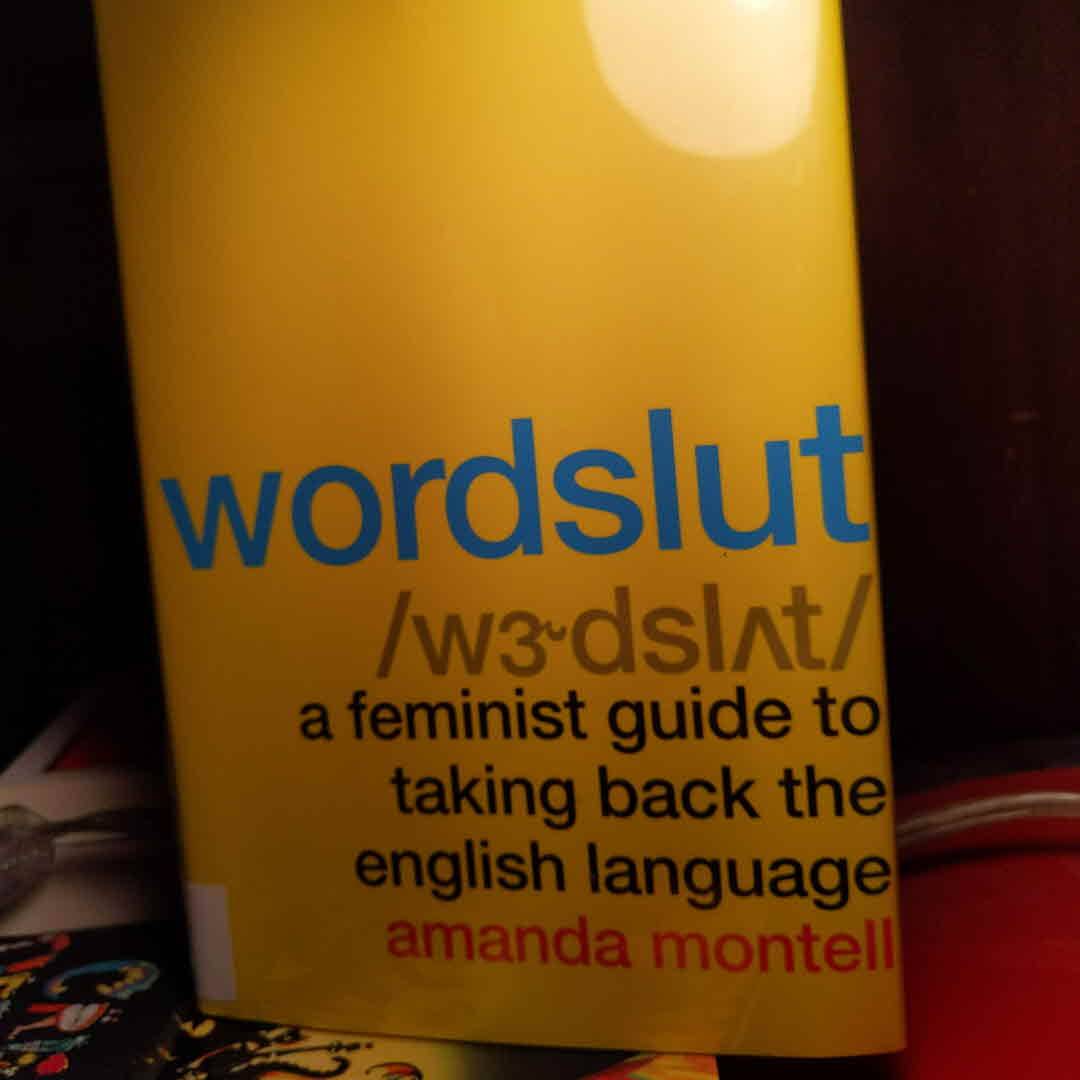
Next read from the library pile.